SfNC 2024: Creativity & Design
SfNC2024 was an exploration of the intersection between the science of creativity and design research. Check out our conference retrospective filled with our insights and takeaways from the meeting, and see pictures from the events below!
View and Download the Full Conference Program
Program Highlights
Keynote Speakers
We were honored to welcome Dr. Upali Nanda & Dr. Kosa Goucher-Lambert as the SfNC 2024 keynote speakers. Dr. Nanda and Dr. Goucher-Lambert are renowned experts on the application of research on human cognition and well-being to the enhancement of creativity and innovation in design.
Dr. Upali Nanda
is EVP and Global Sector Director for Innovation at HKS, an international architectural firm where she oversees a range of innovation practices that work within, through and beyond the built environment for meaningful impact. Dr. Nanda teaches as Associate Professor of Practice at the Taubman School of Architecture and Urban Planning at University of Michigan and serves on the board of the Academy for Neuroscience for Architecture. She received her Bachelor's degree in Architecture from School of Planning and Architecture, New Delhi, M.A. from National University of Singapore, and PhD in Architecture from Texas A&M University.
Dr. Nanda led the research arm of HKS from 2013- 2023 to bring neuroevidence-based and culturally responsive approaches to building environments that support innovation, creative thinking, and brain health on an international scale. In addition to her book, Sensthetics: A Crossmodal Approach to Designing for the Senses, Dr. Nanda has published her work on designing sensory environments that support brain health and creative thinking extensively in peer-reviewed journals.
Dr. Kosa Goucher-Lambert
is an Assistant Professor in the Department of Mechanical Engineering and affiliated faculty with the Jacobs Institute for Design Innovation at UC Berkeley. Dr. Goucher-Lambert is a recipient of the National Science Foundation CAREER Award, 2019 Excellence in Design Science Award, and several best paper awards from the American Society of Mechanical Engineers and the Design Society.
At UC Berkeley, he directs the Cognition and Computation in Design (Co-Design) Lab, whose goals include developing theories of design processes, models predicting user responses to designs, and tools to enhance designer capabilities through human-computer synthesis. The lab’s research includes human-subject studies, neuroimaging, computational modeling, interactive prototype development, and in-situ studies of student and professional designers.
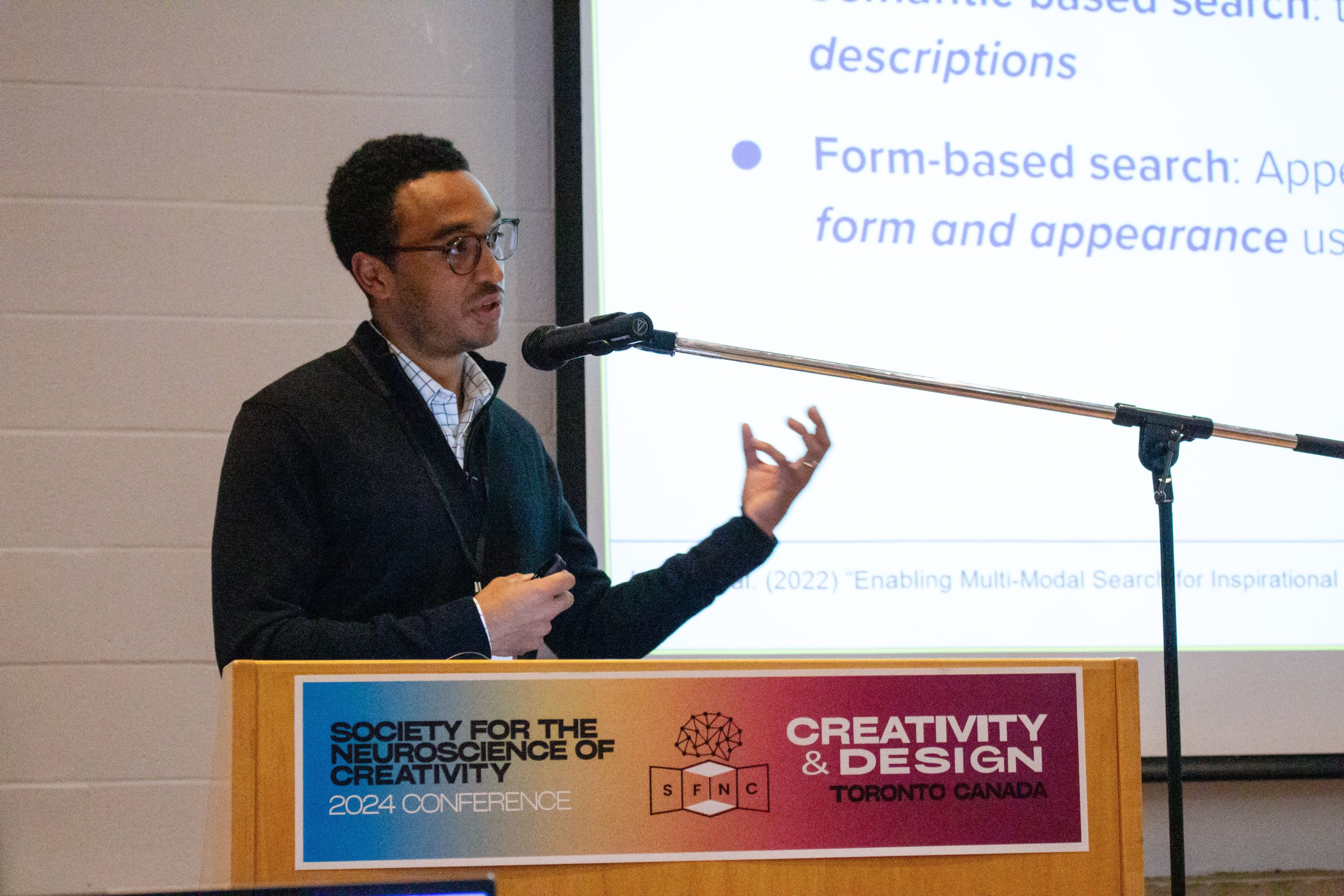
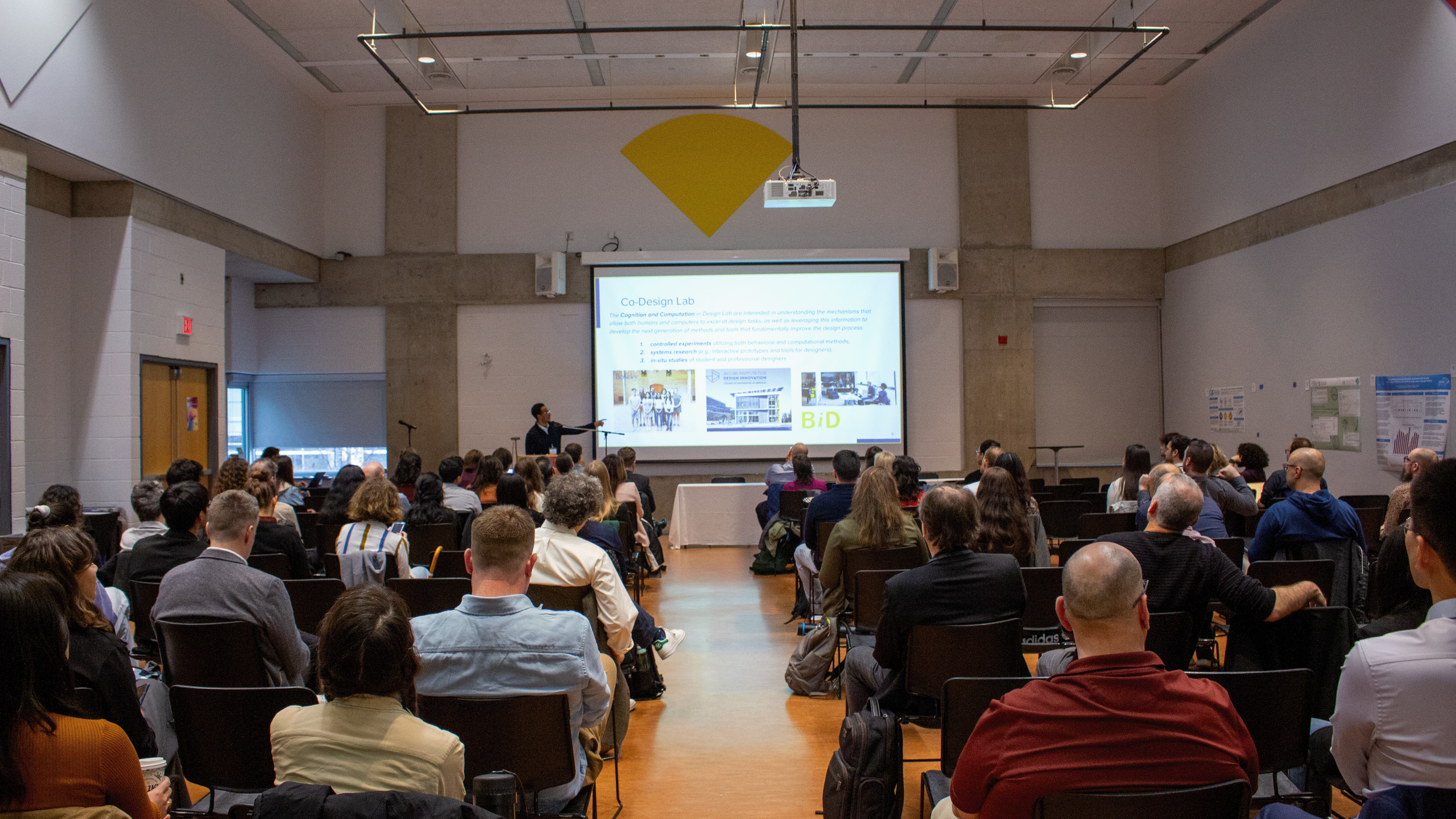
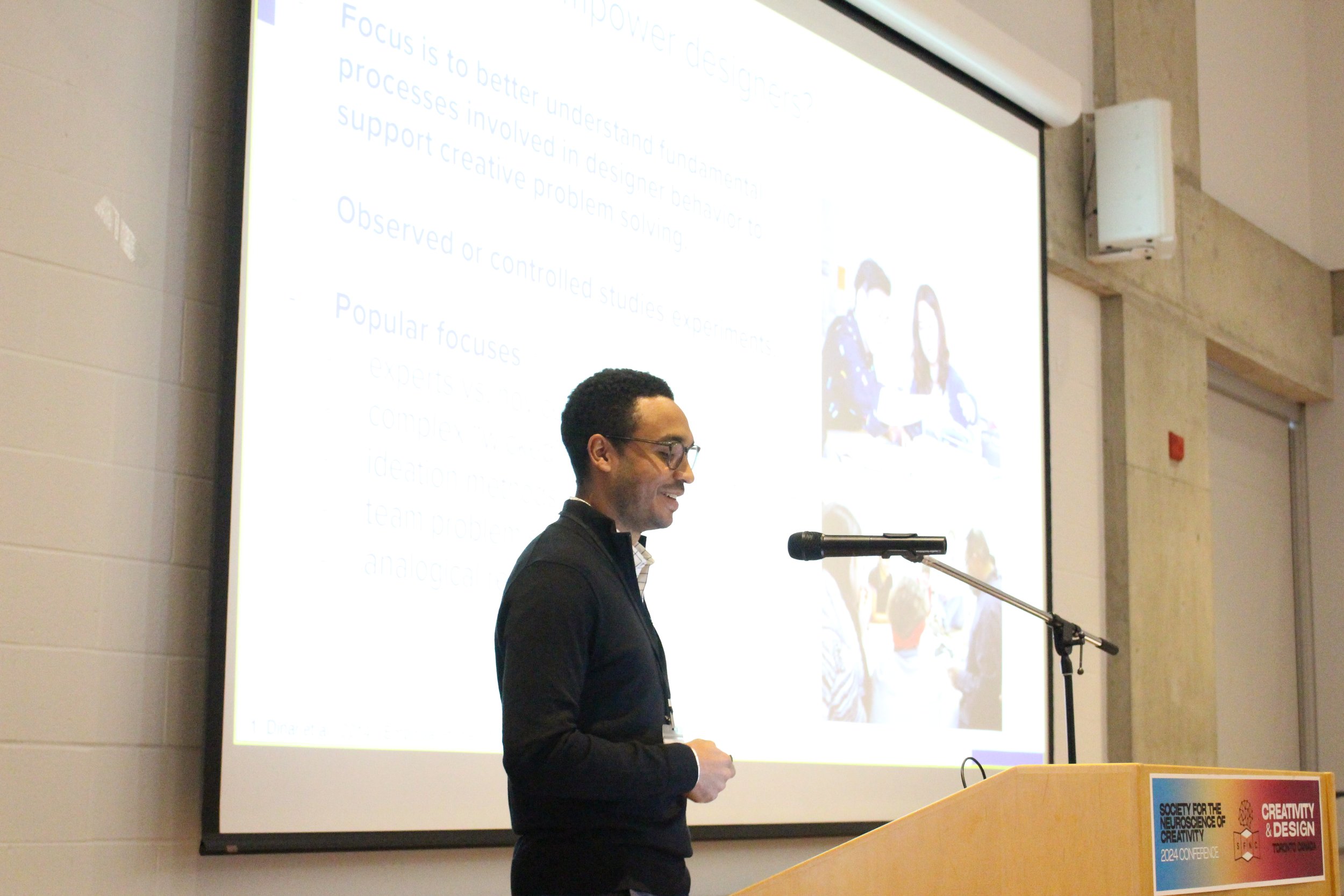
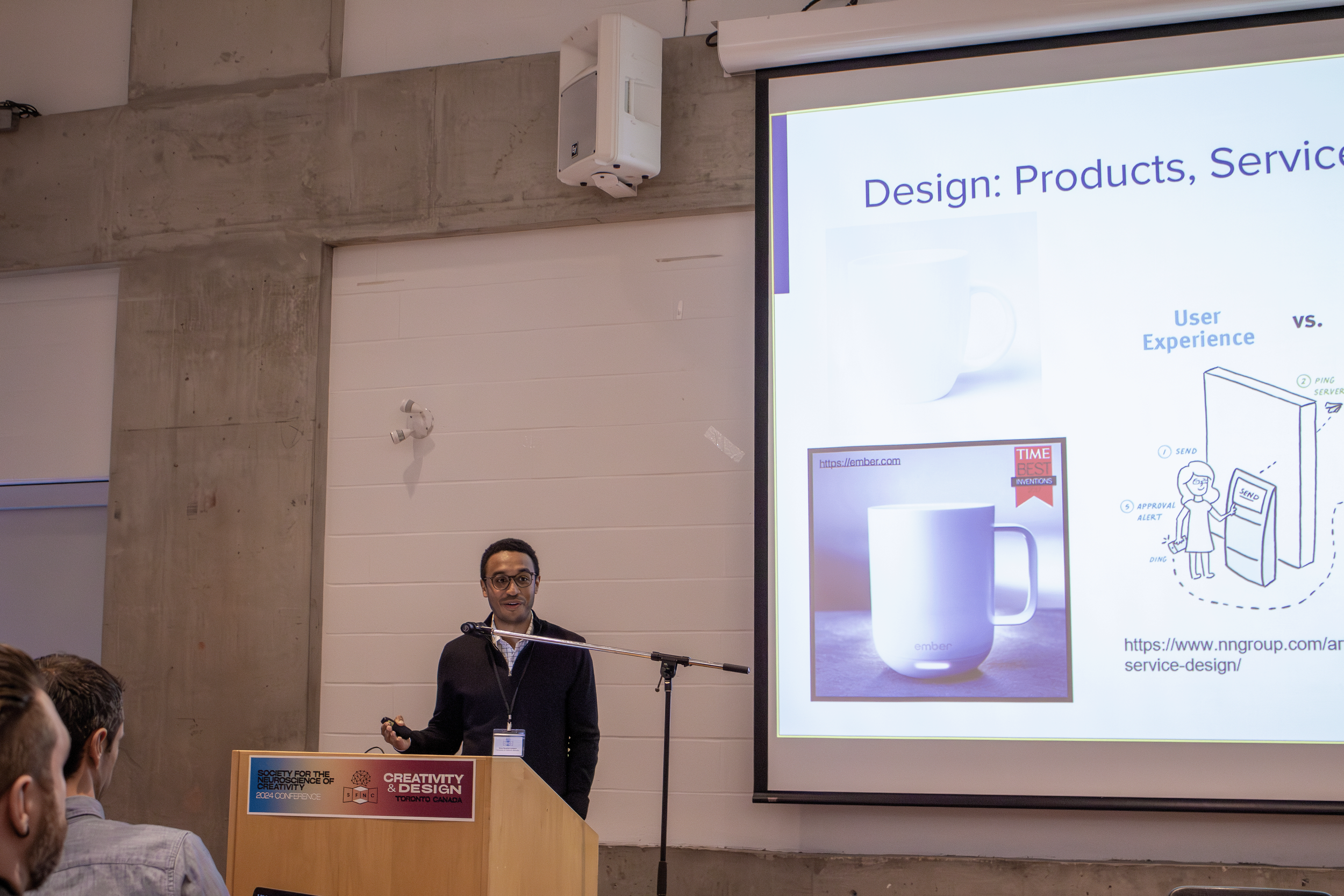
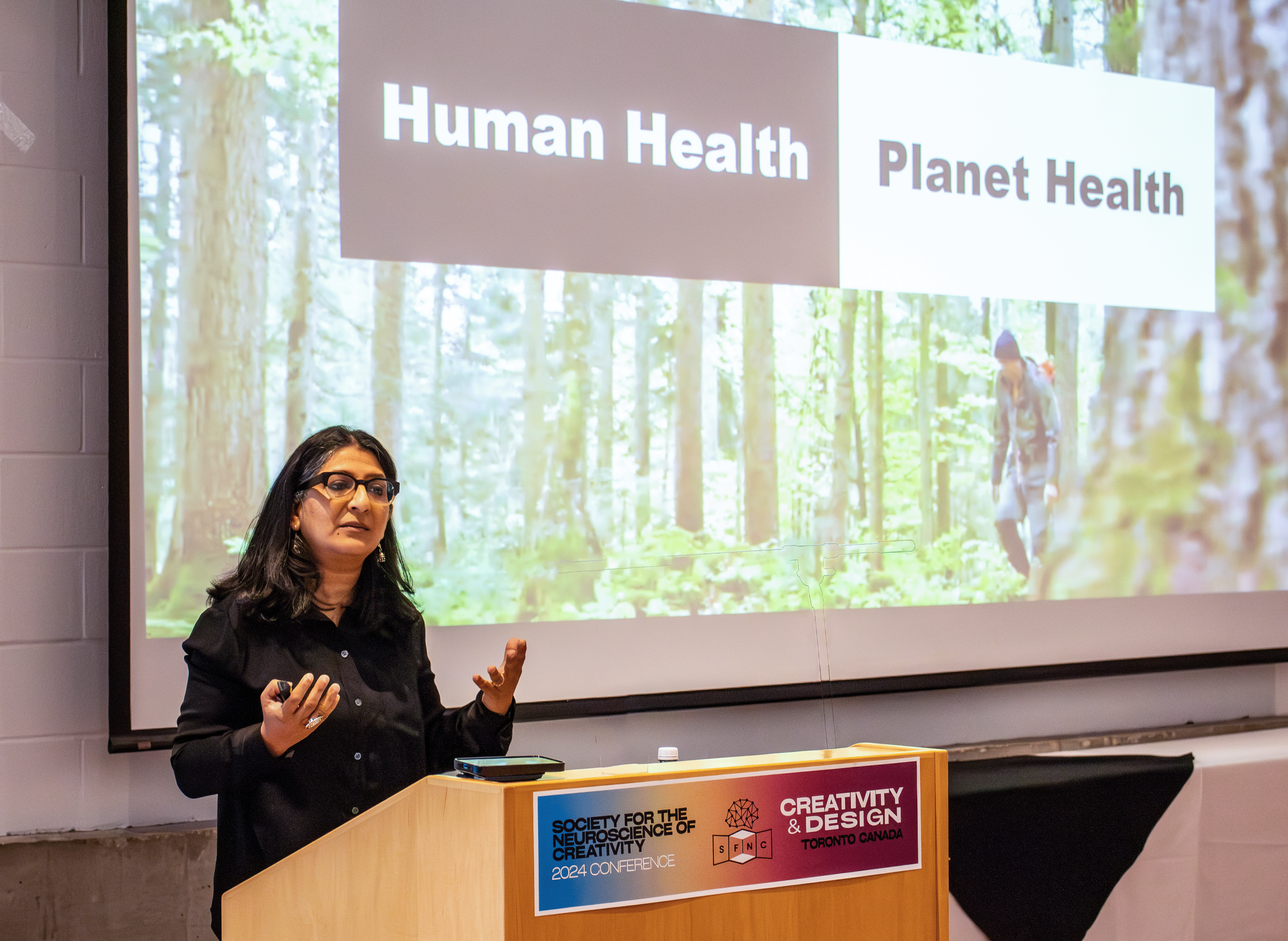
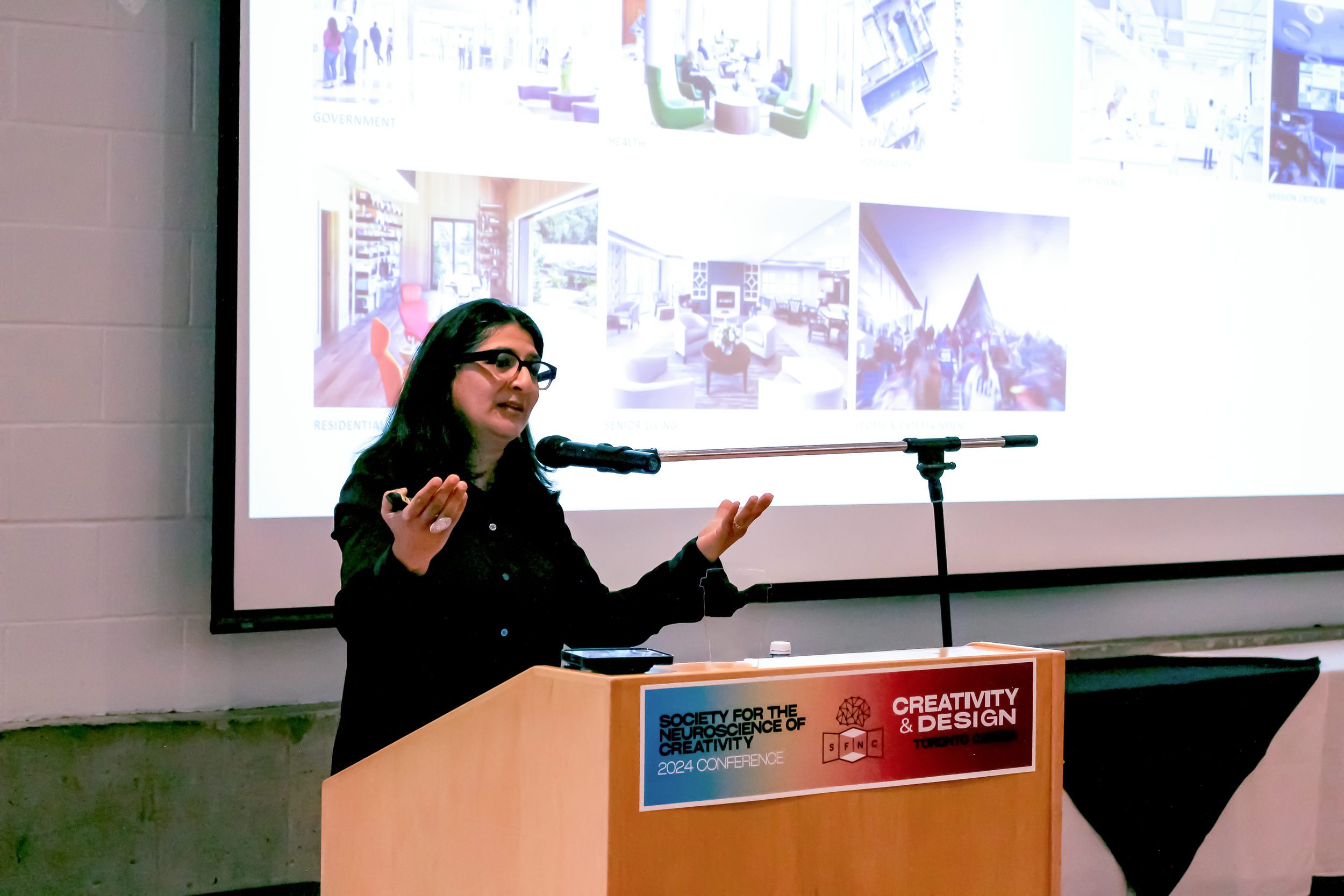
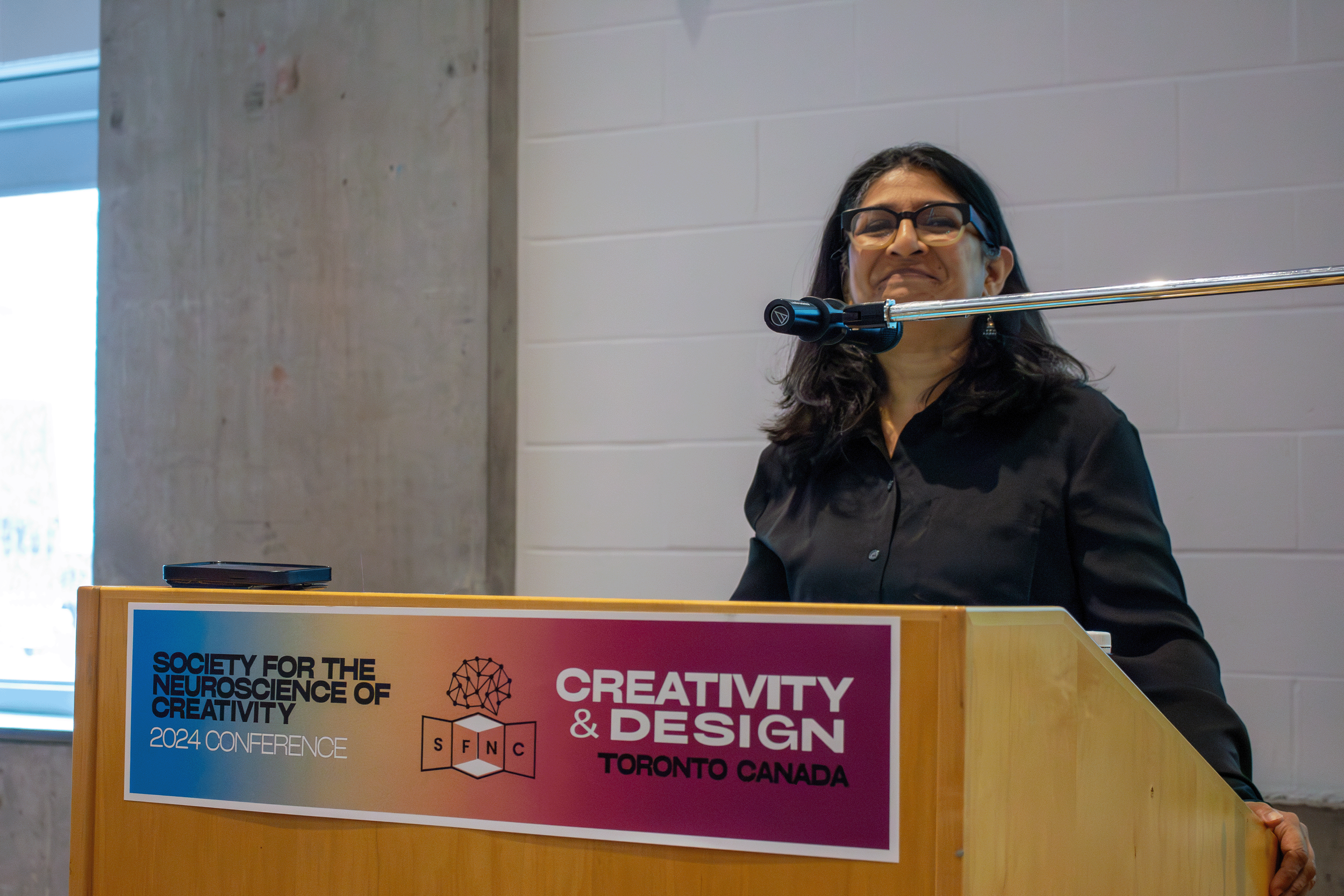
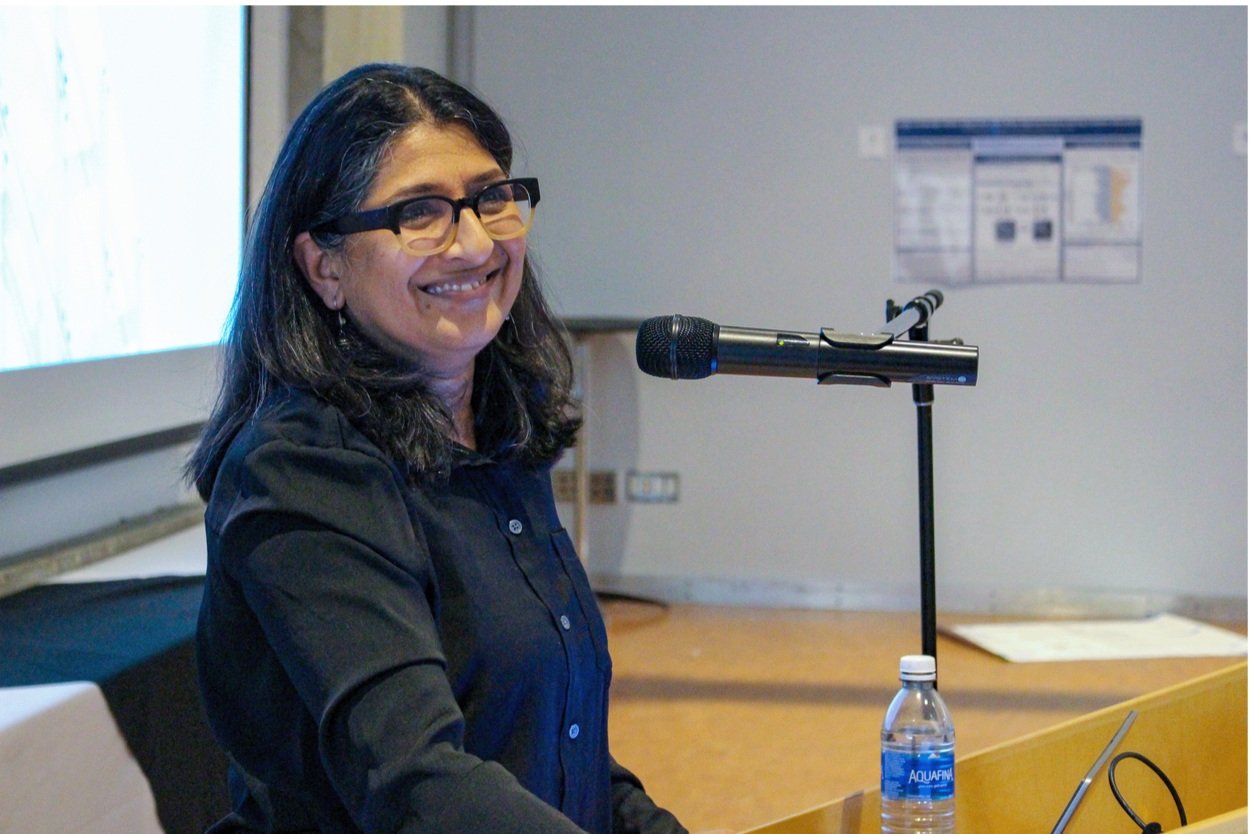
Neuroscience of Creativity Expert Panel
A panel of leaders in the Neuroscience of Creativity (Adam Green, Indre Viskontas, and Yoed Kenett) discussed the state of the field, exciting new breakthroughs, future priorities for our discipline, and more!
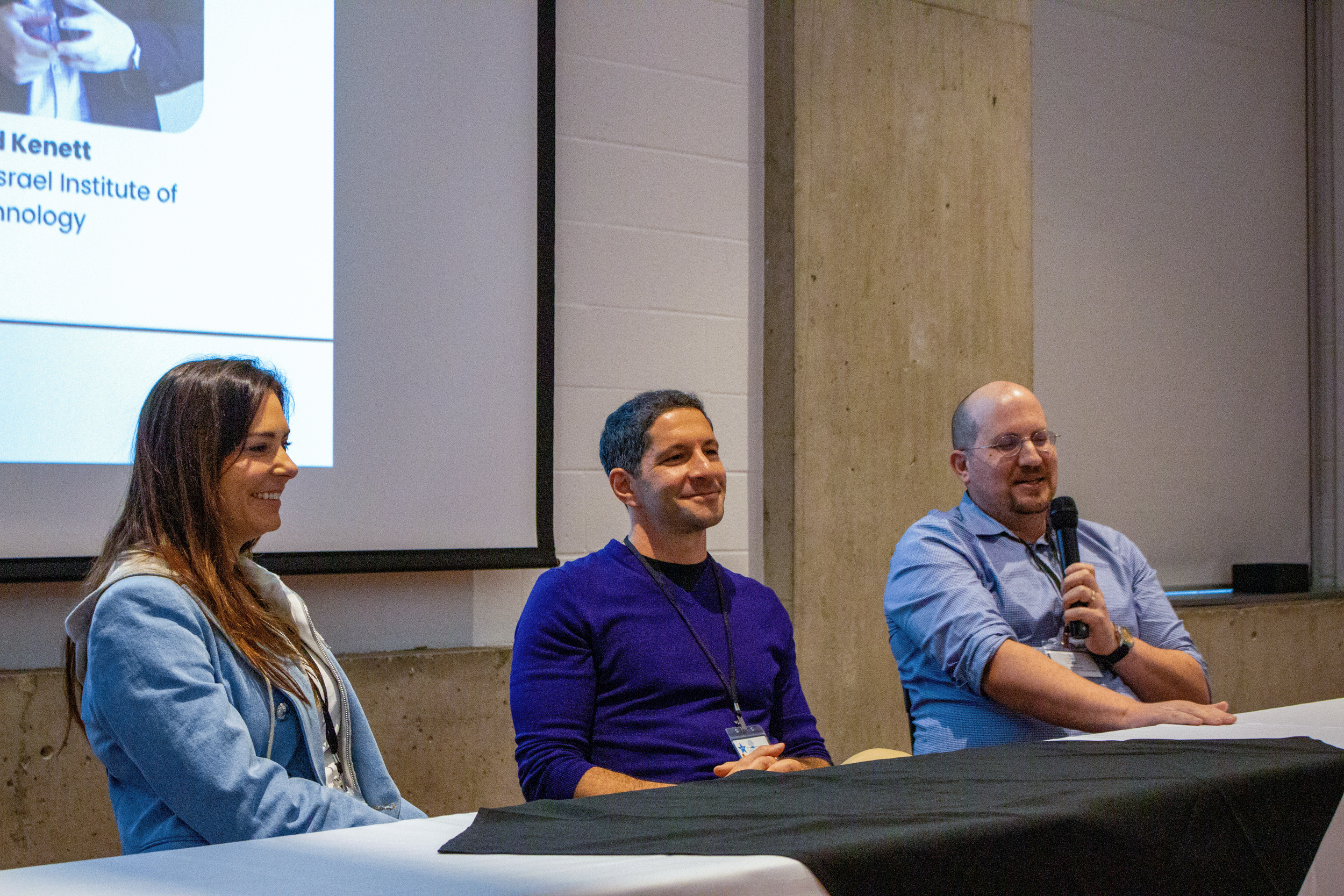
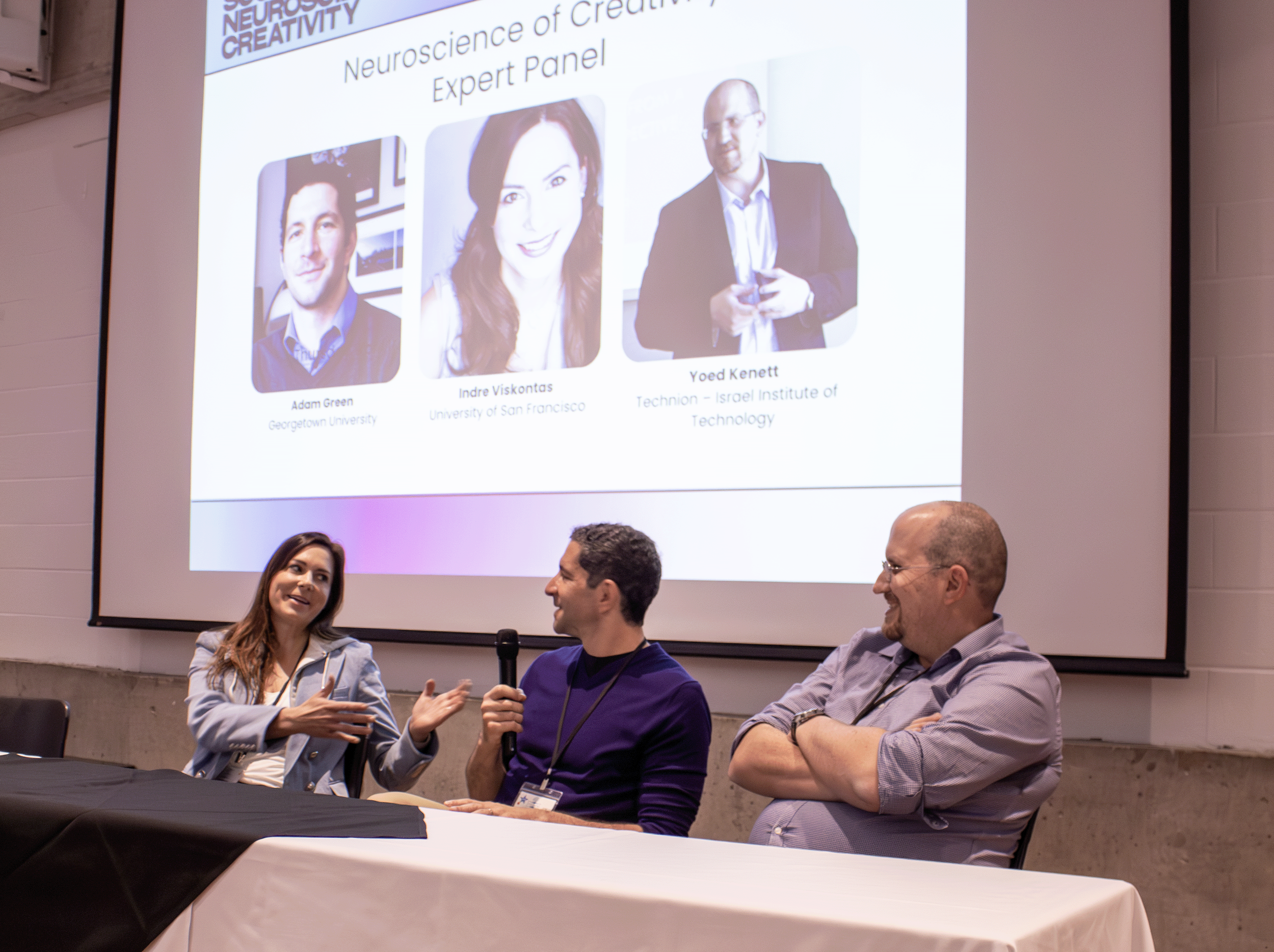
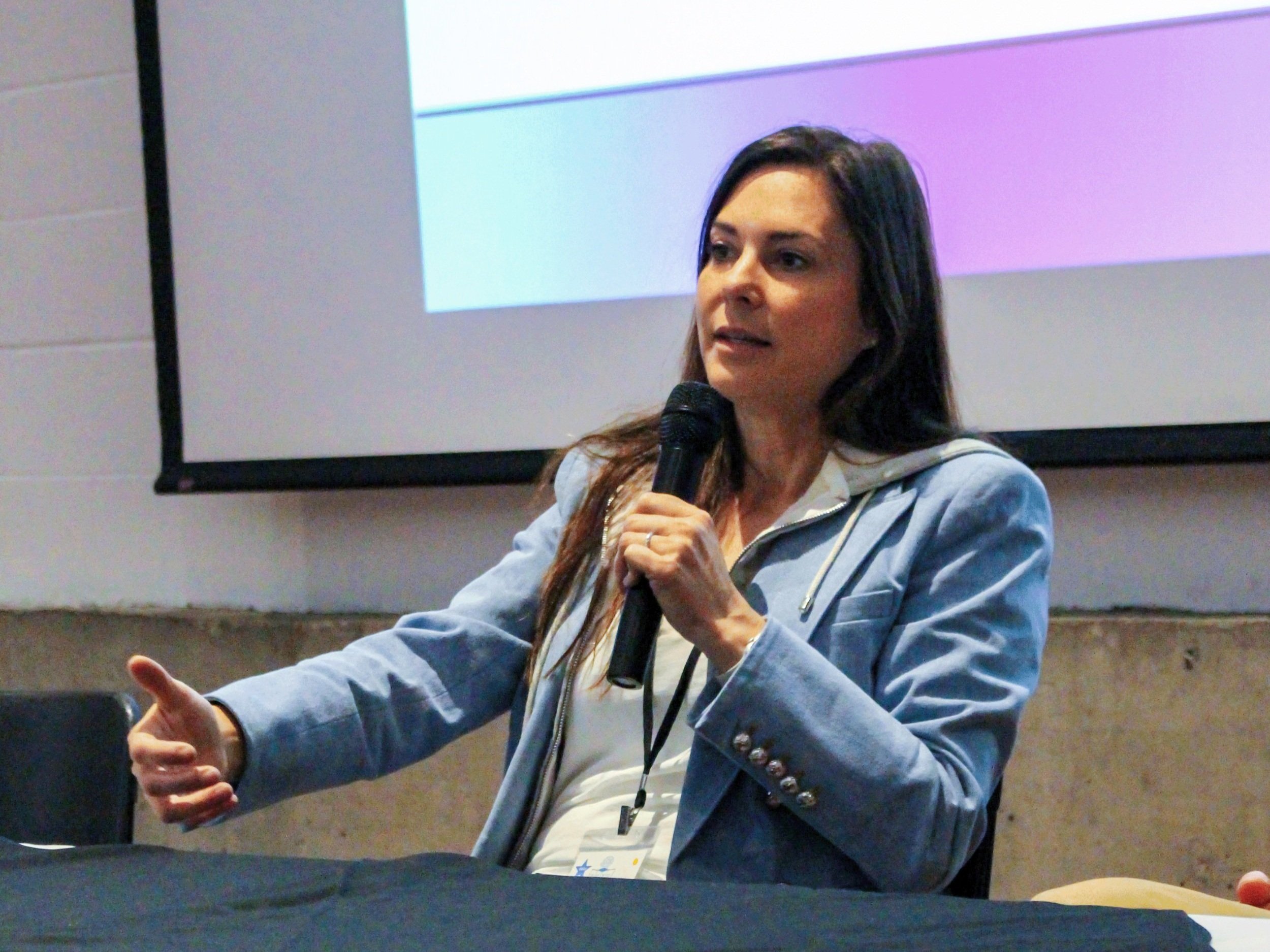
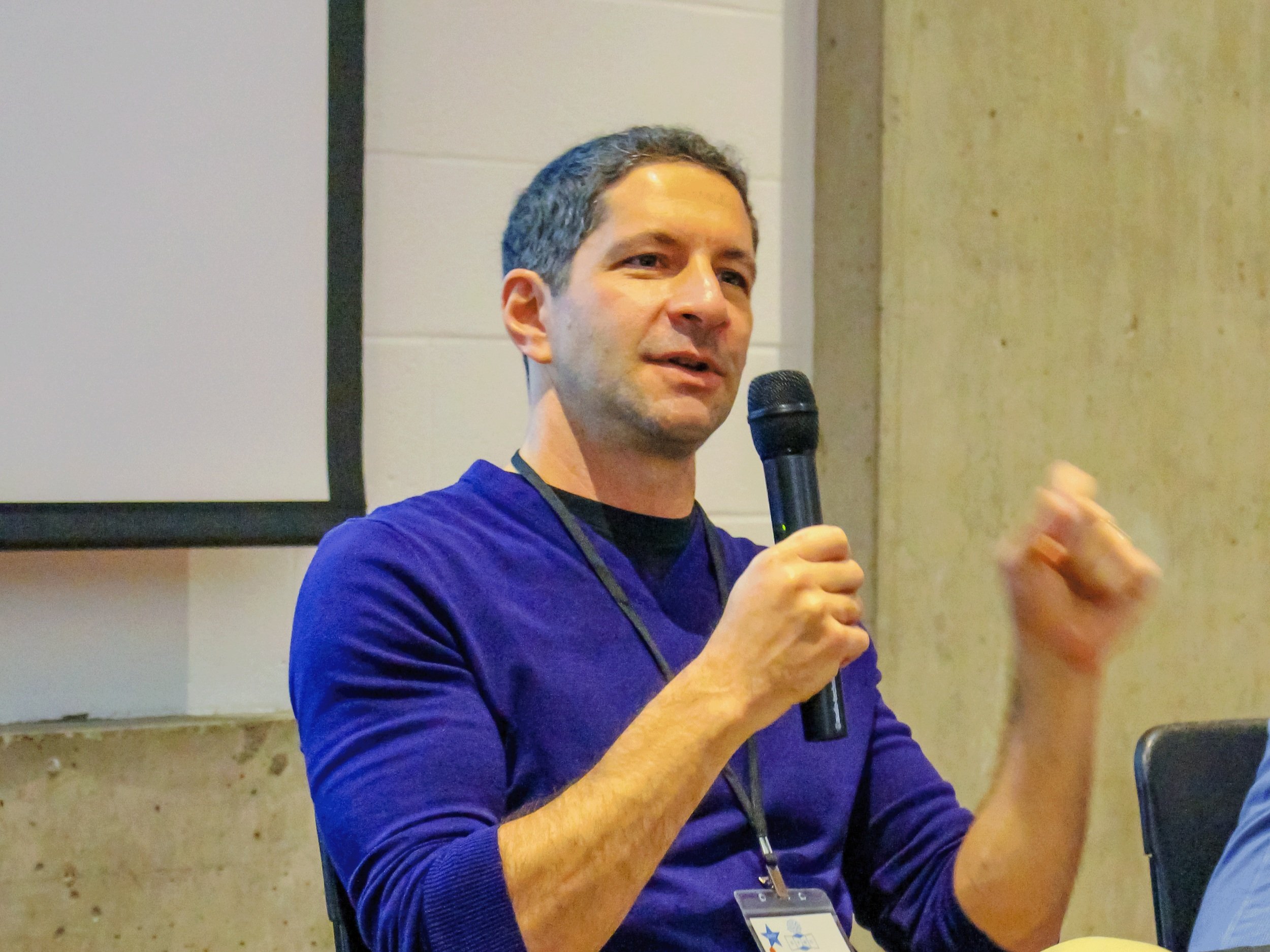
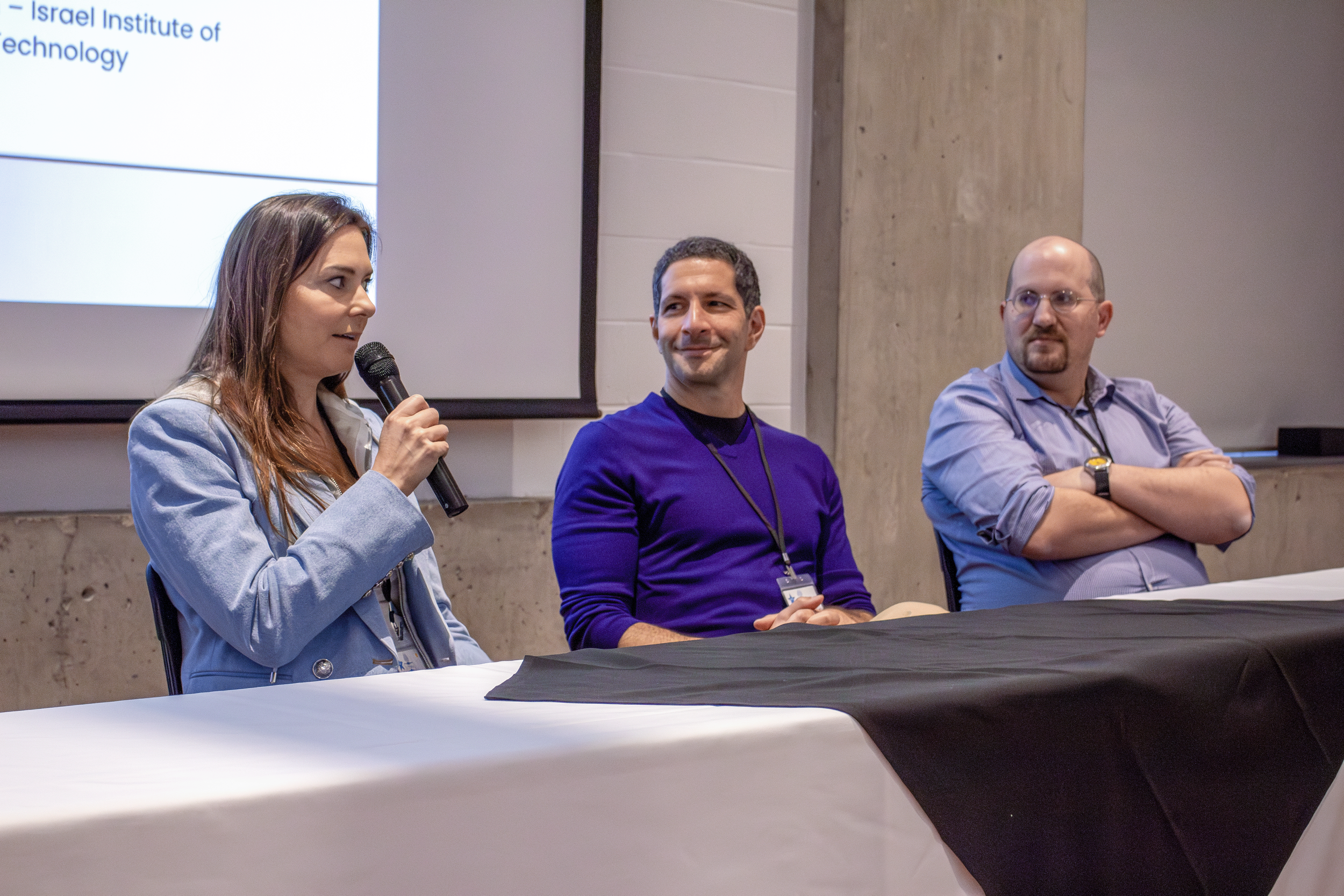
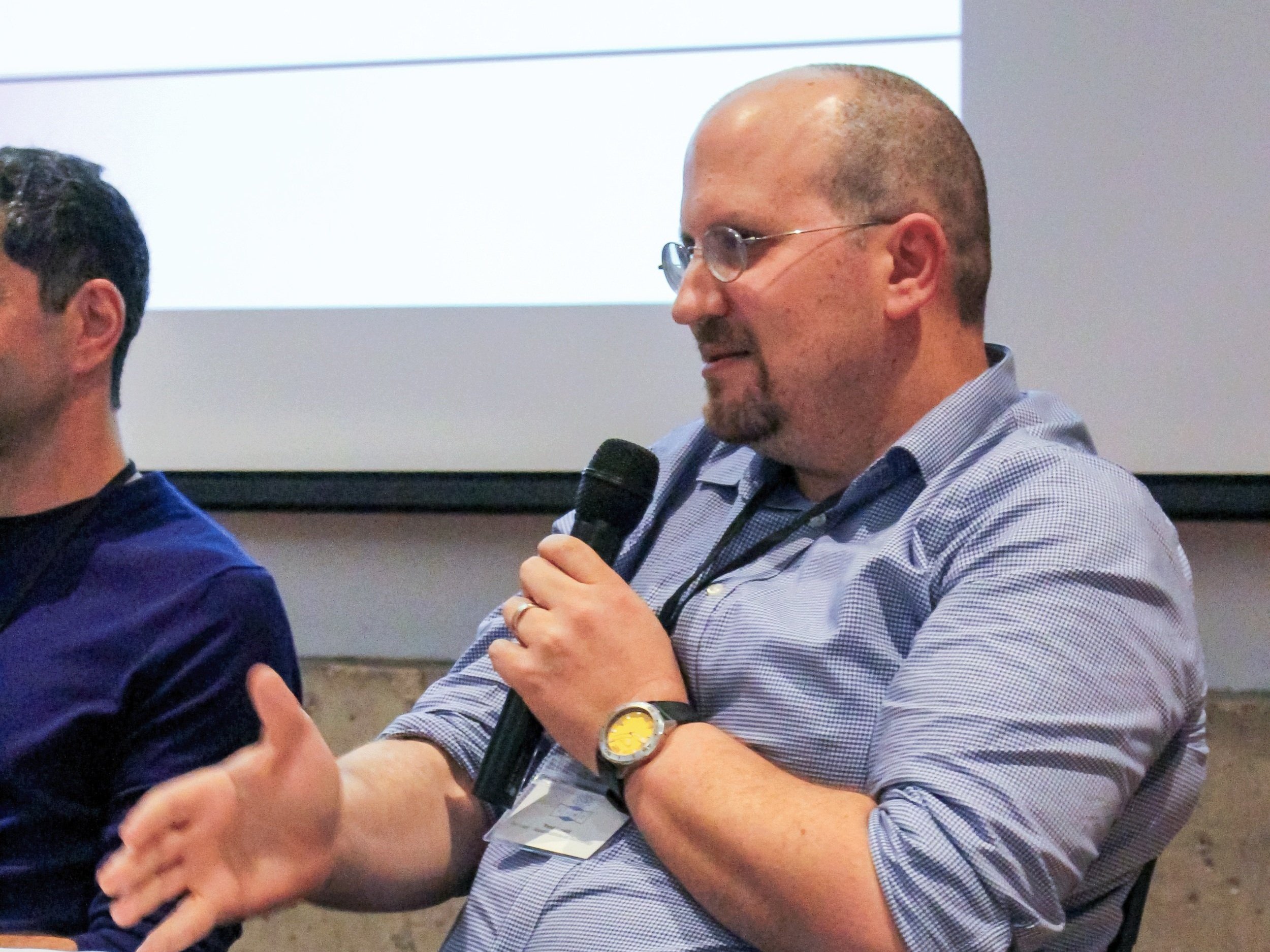
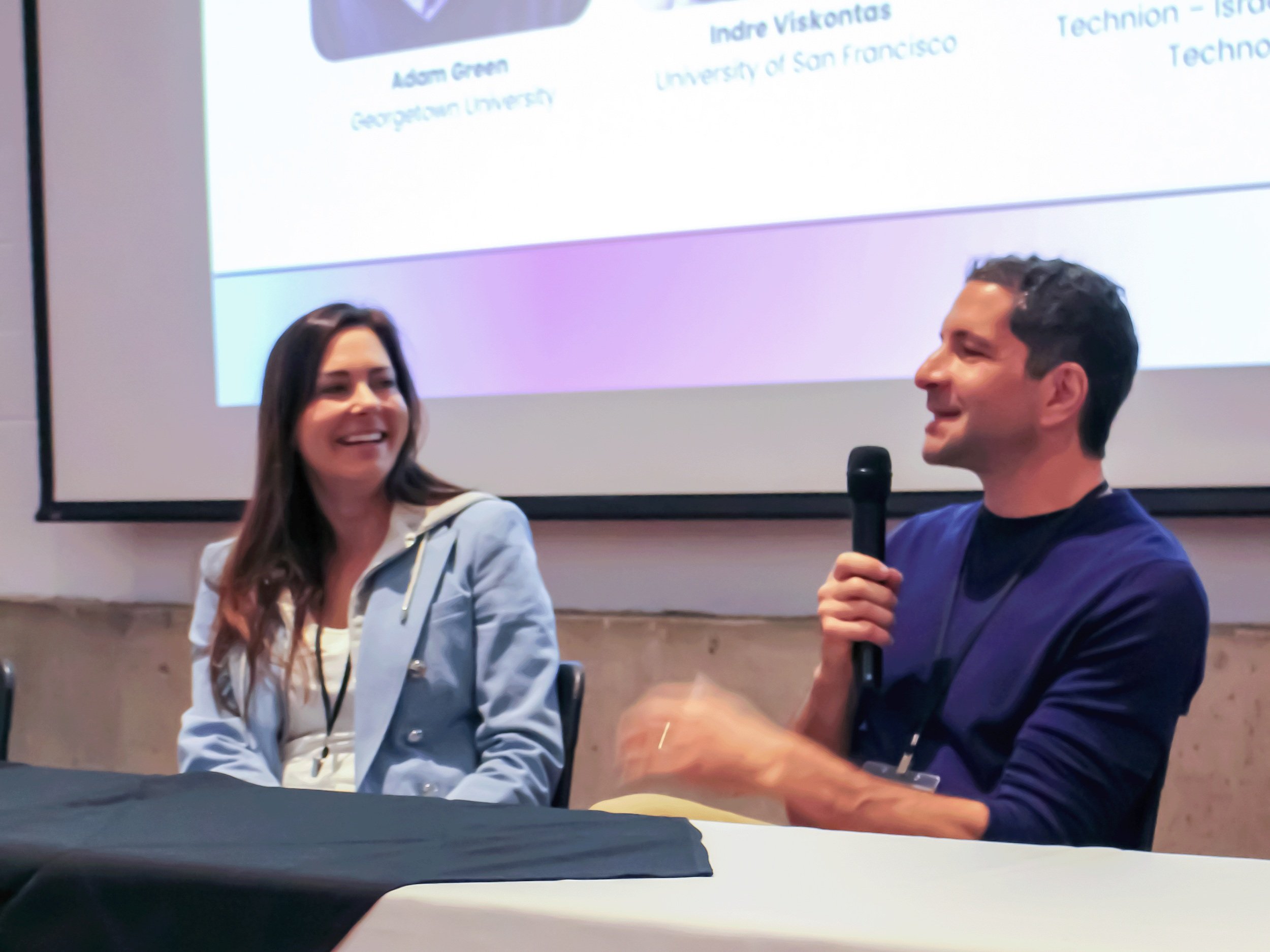
Creativity & Design Panel
This panel brought together experts from different disciplines across creativity, aesthetics, design science, and neuroscience to discuss what each of our fields have learned from each other. The panel included a guided, interactive conversation on the state of the research in design neurocognition, and an exchange of perspectives on the key opportunities and challenges for the future.
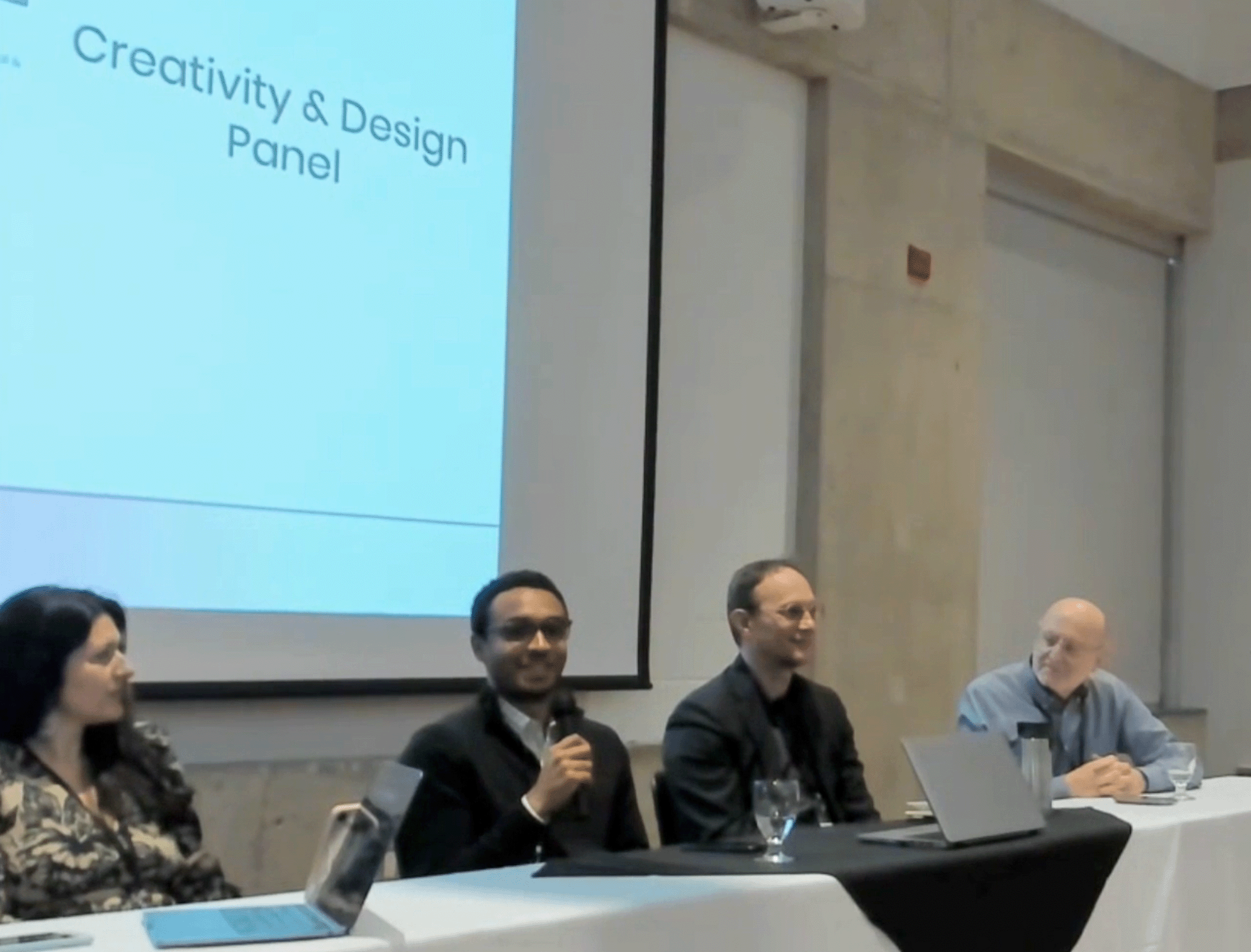
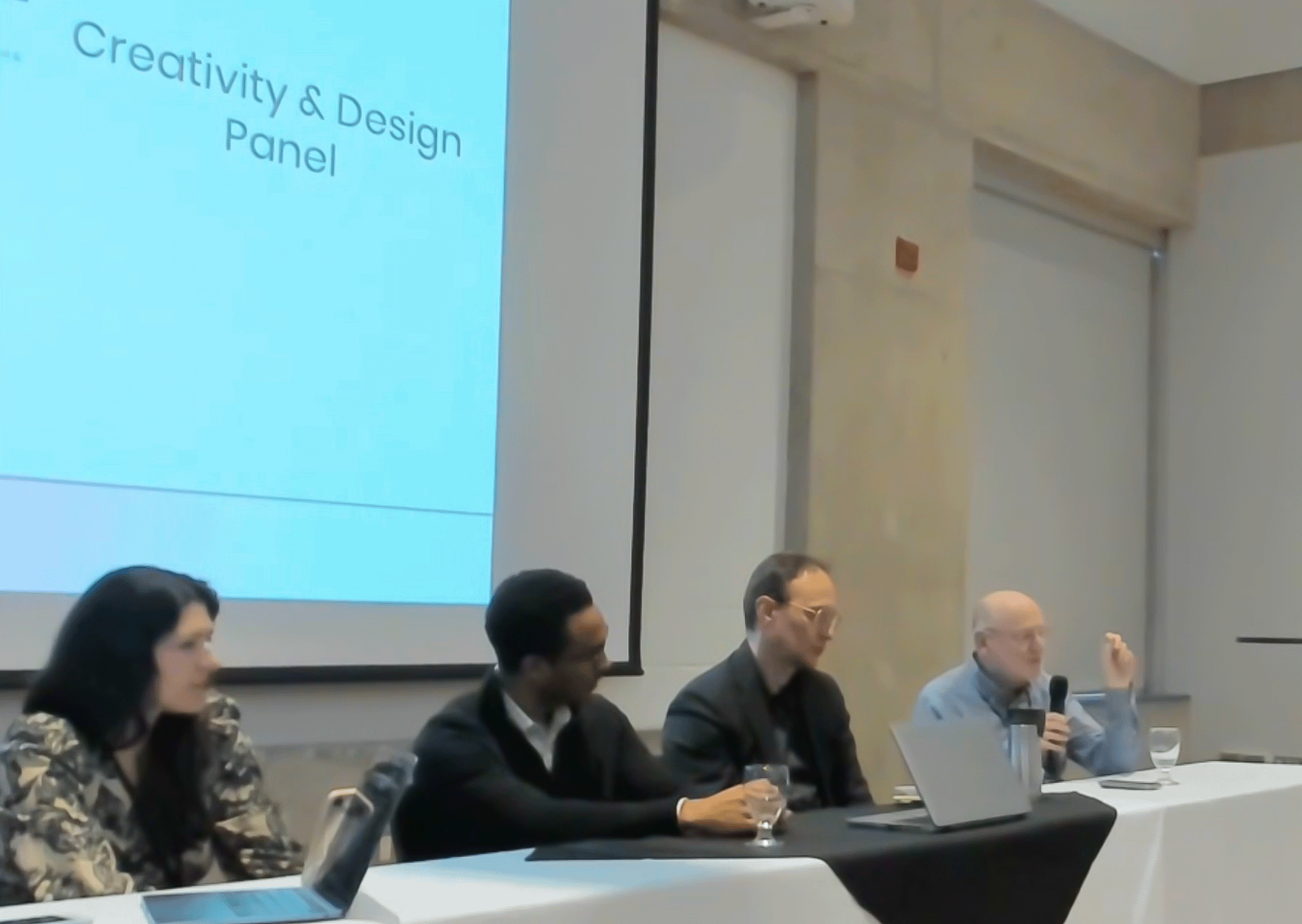
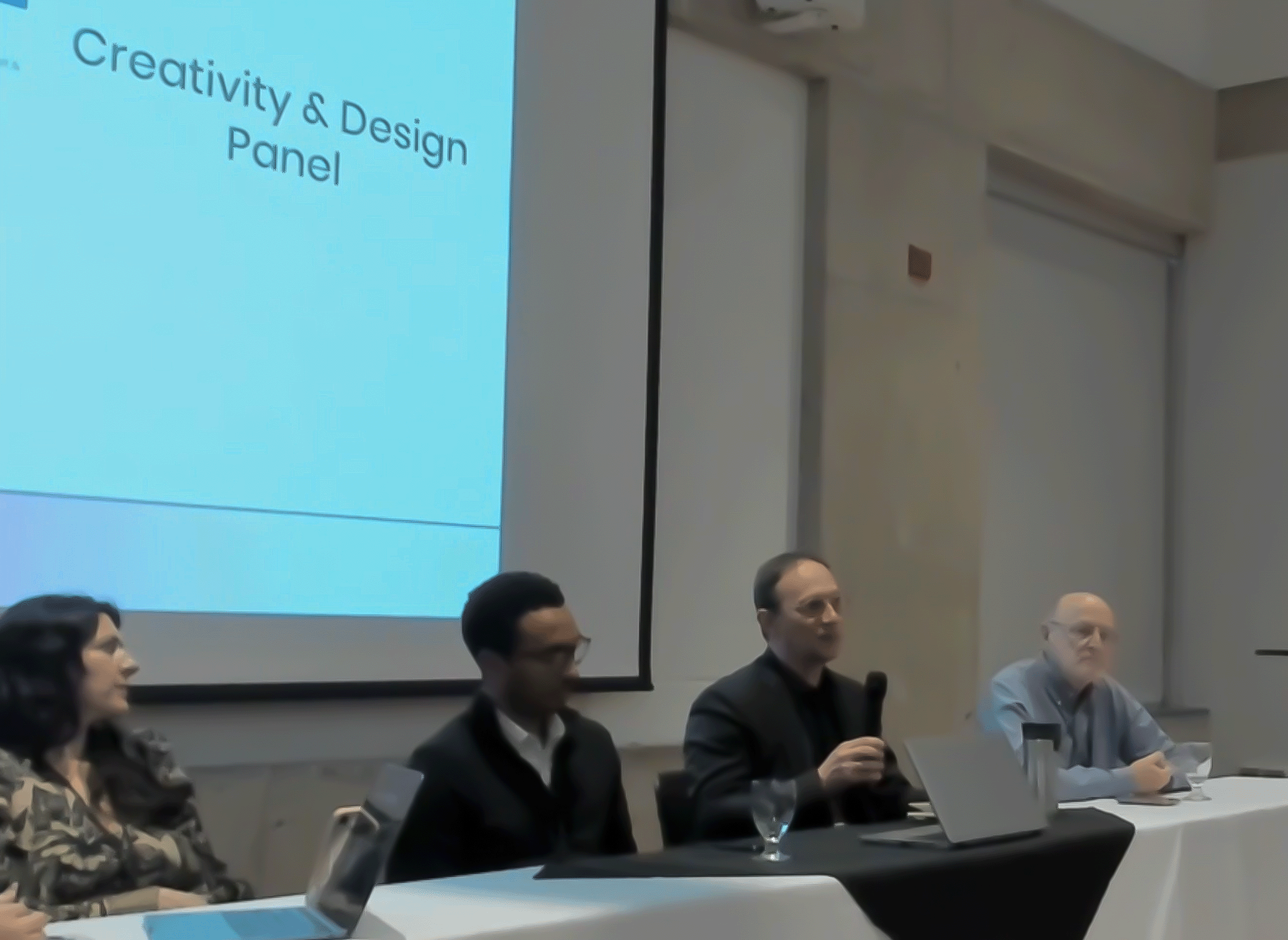
Federal Funding for Creativity Research and How to Get It
The NSF Funding Panel presented the SfNC Community with a unique opportunity to hear from Dr. Gregg E. Solomon, Program Director in the Division of Research on Learning at the National Science Foundation, regarding funding priorities and opportunities for creativity research. The panel featured a brief presentation, followed by a Q&A session between Dr. Solomon and the conference attendees.
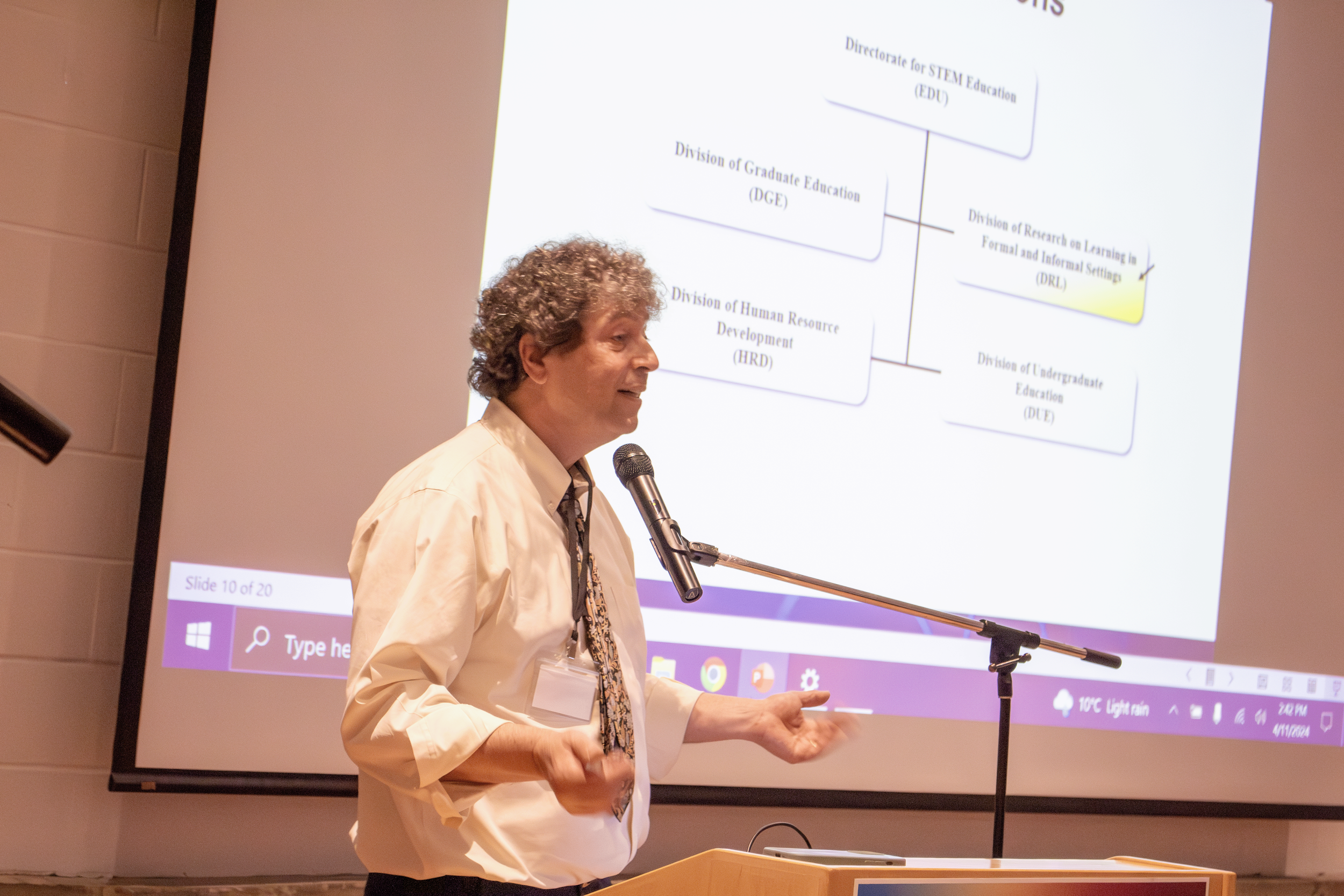
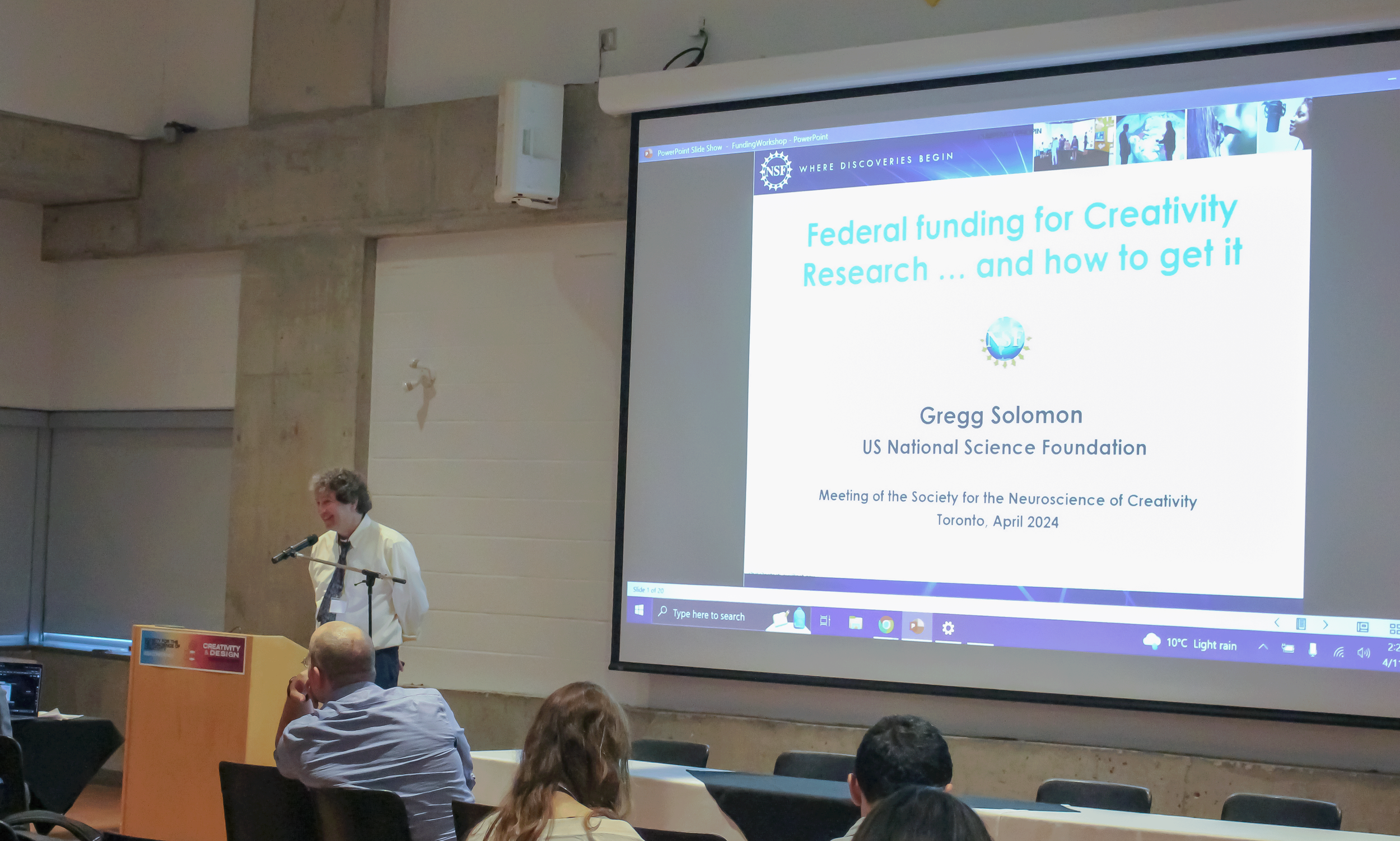
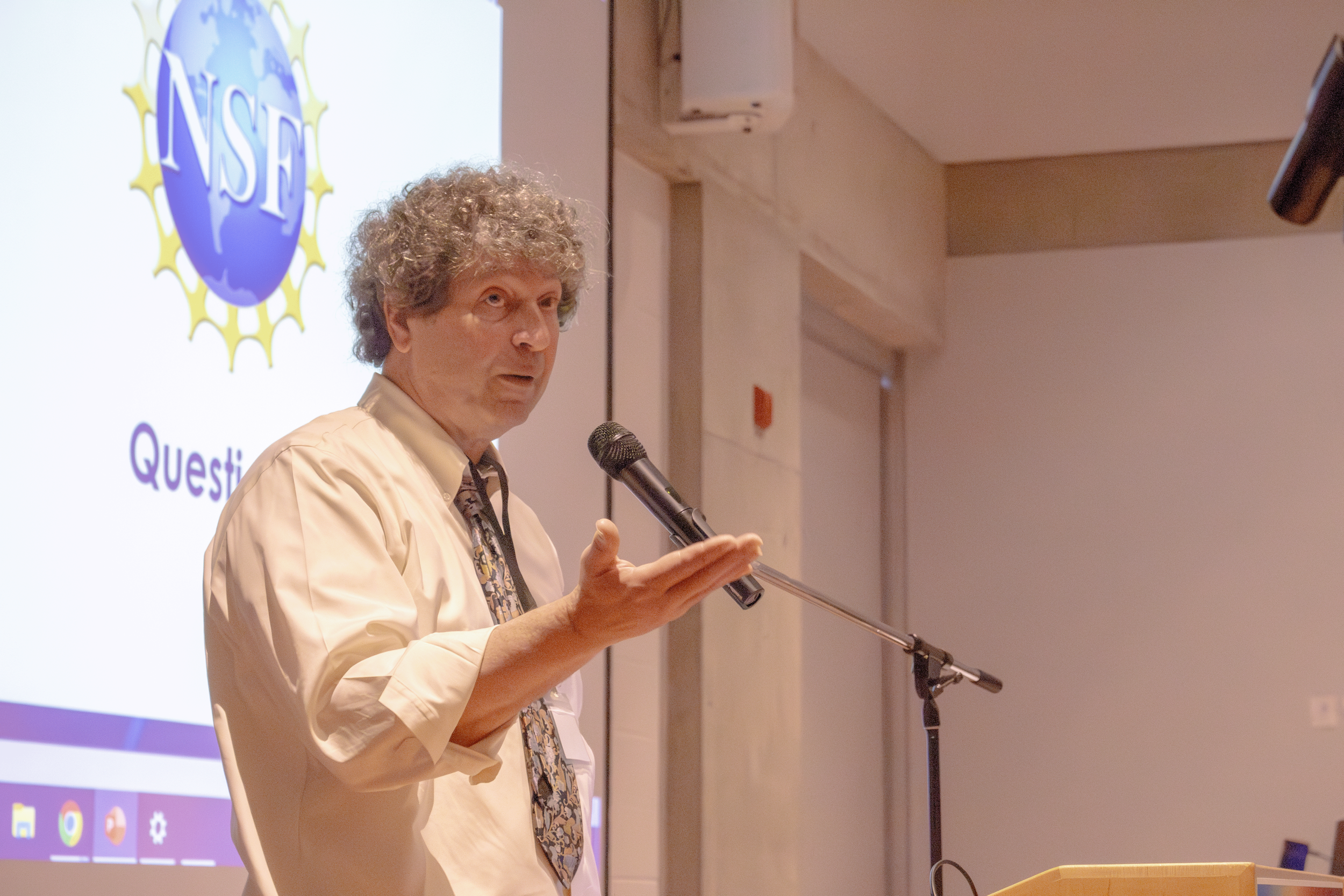
Research Presentations
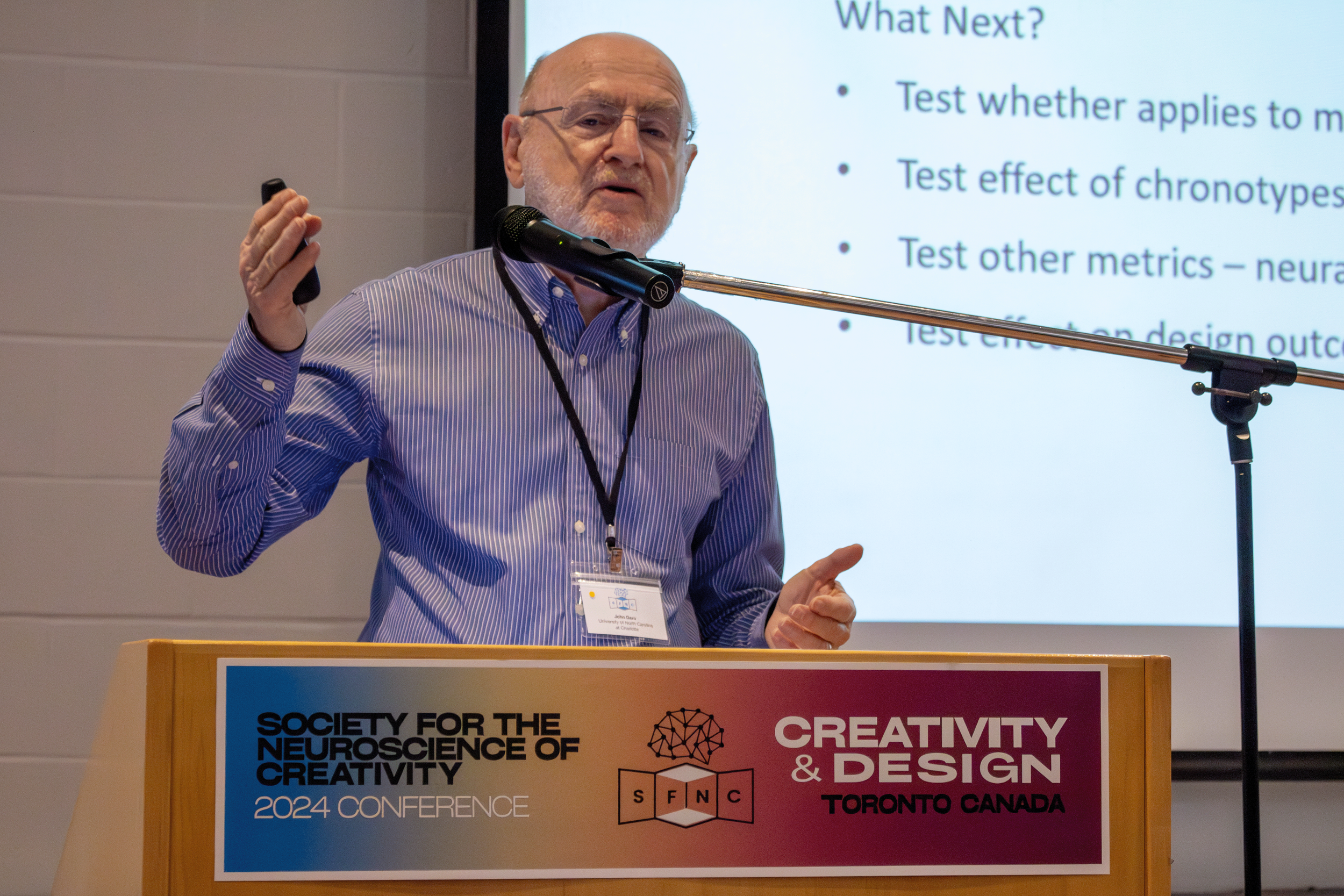
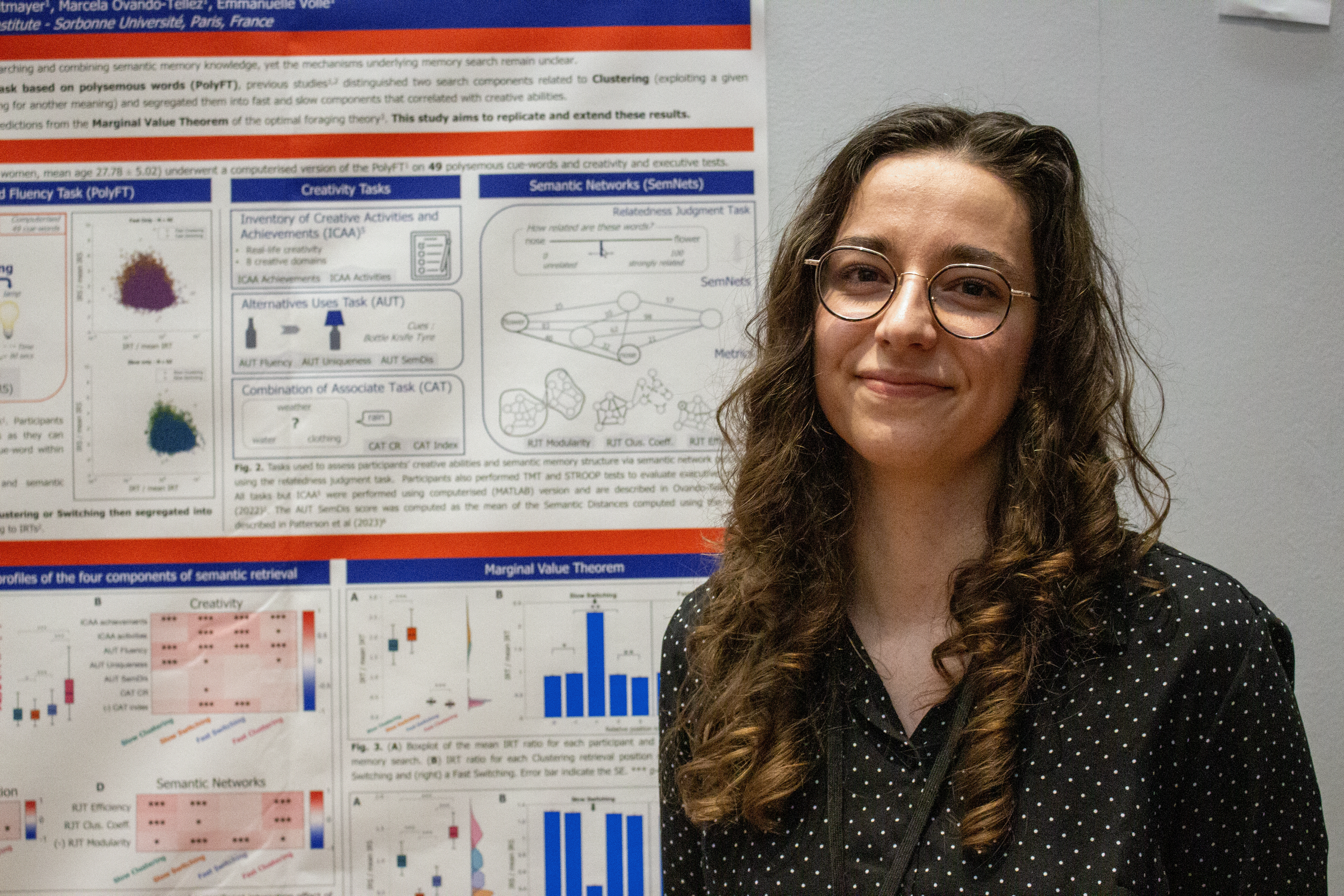
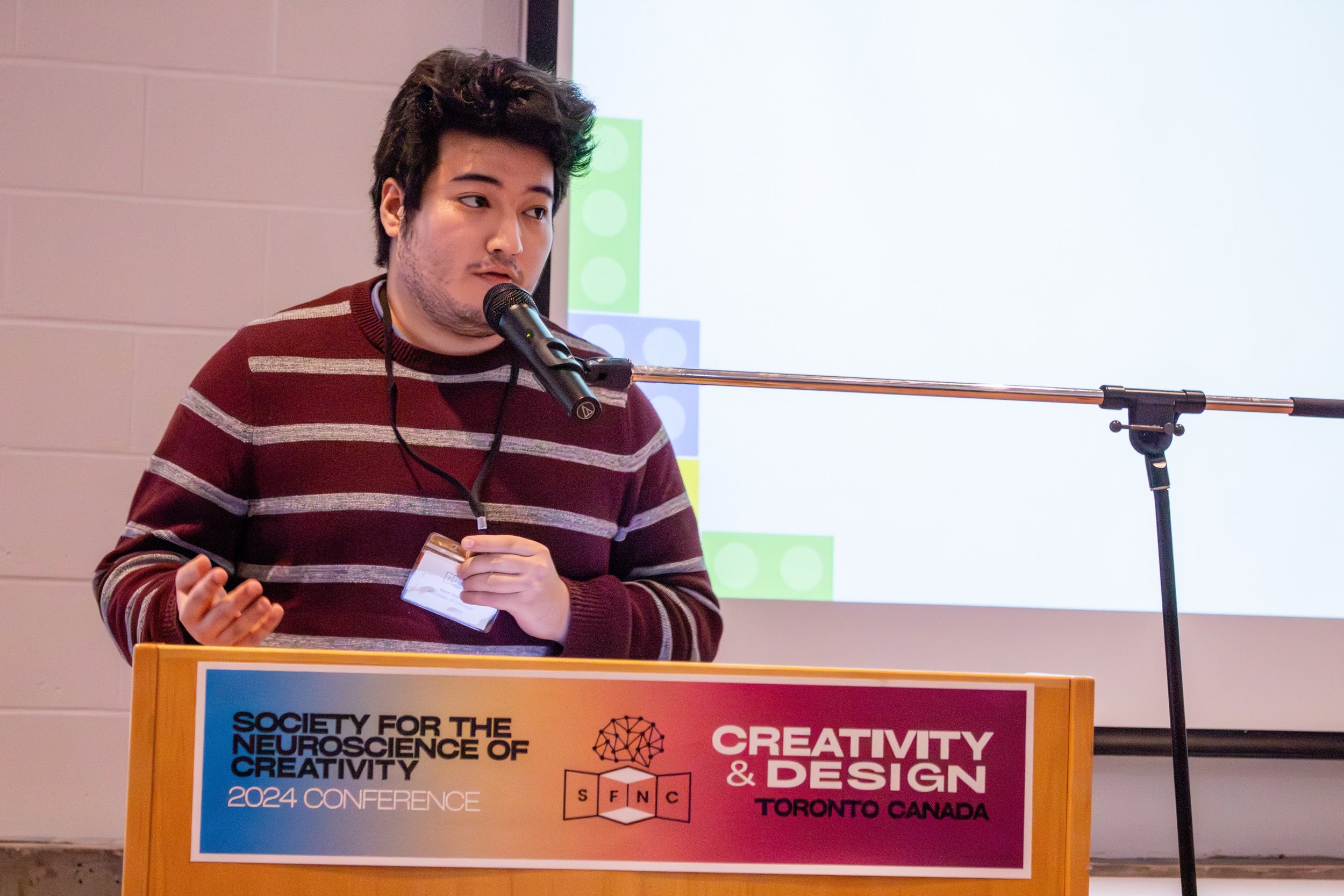
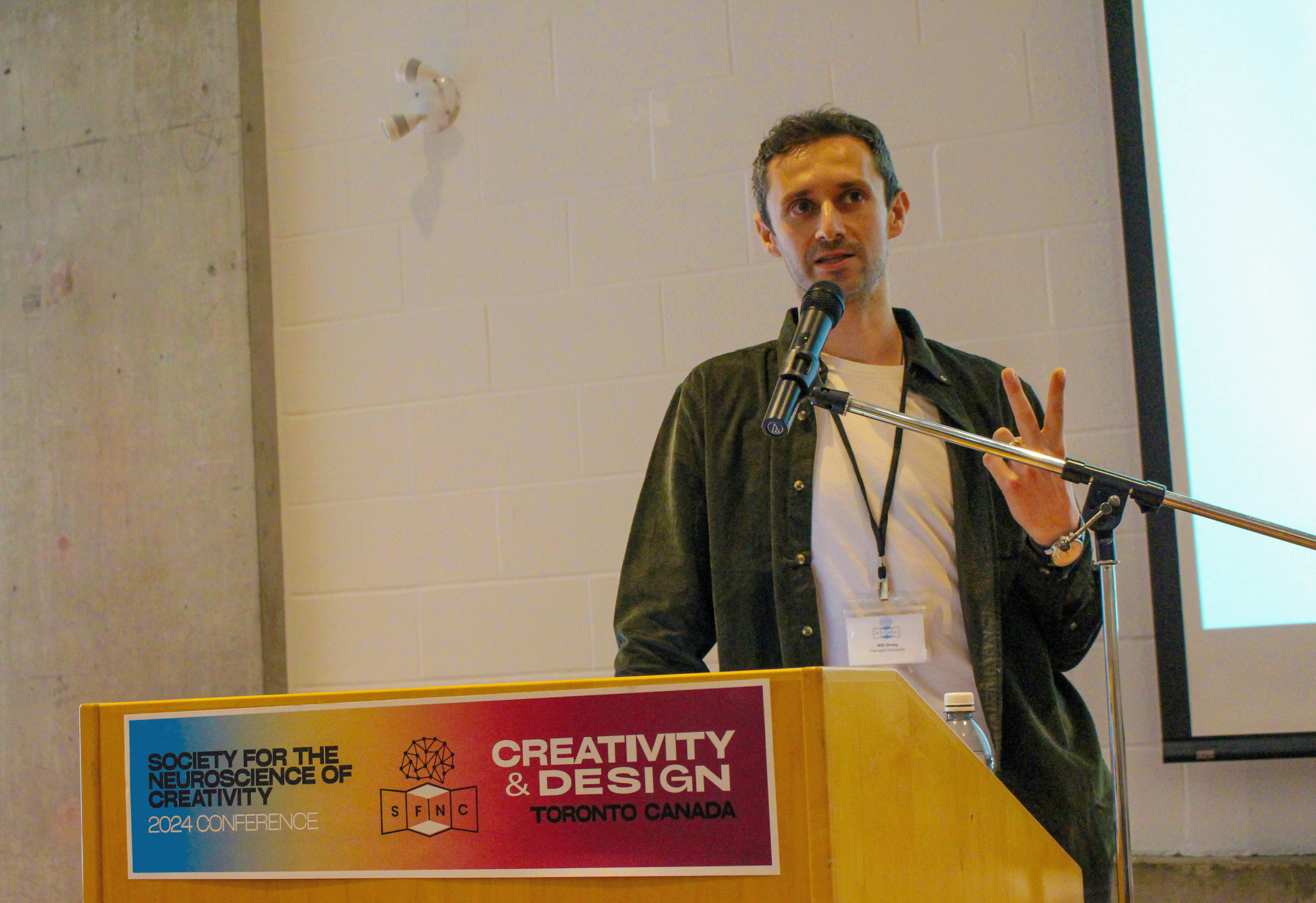
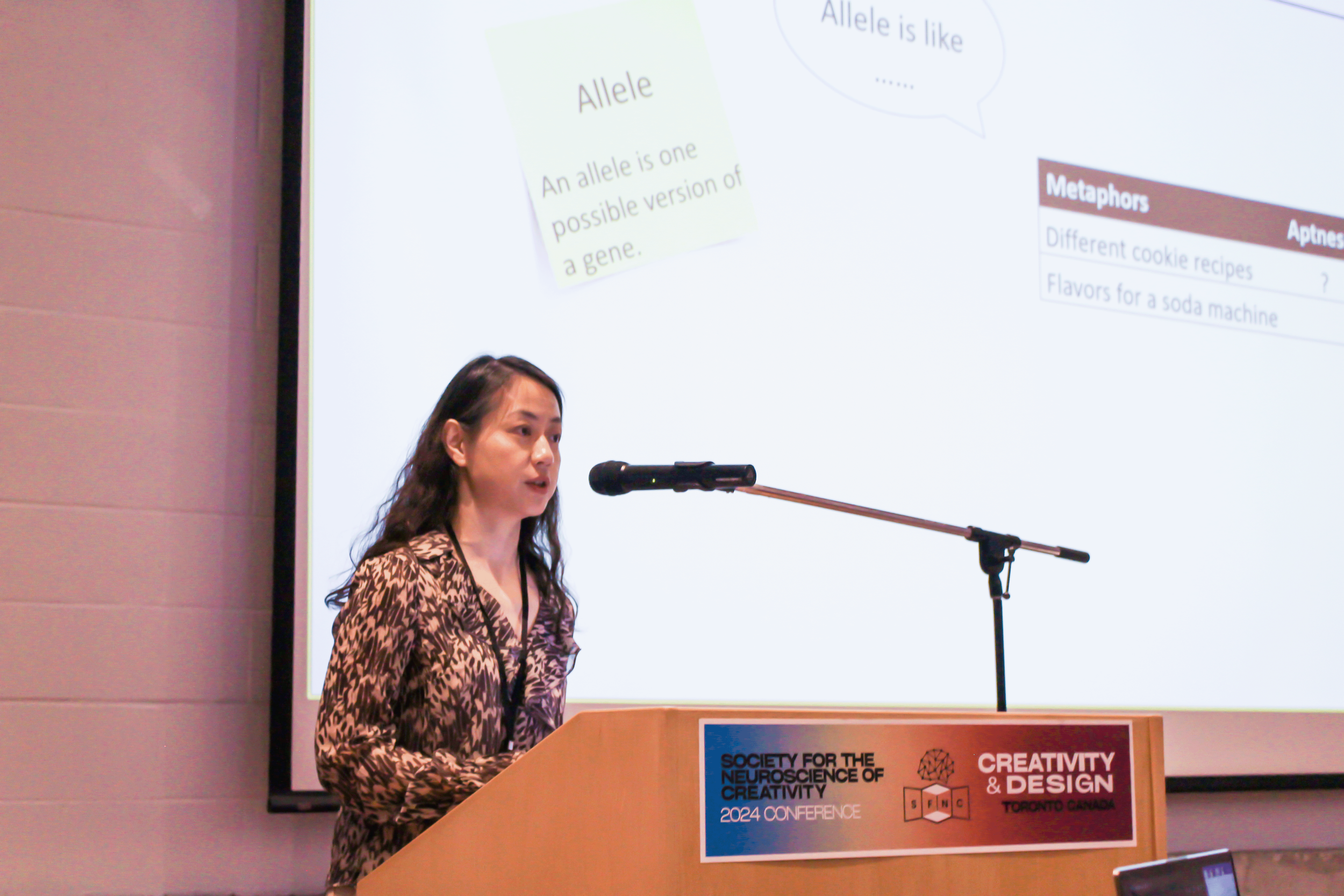
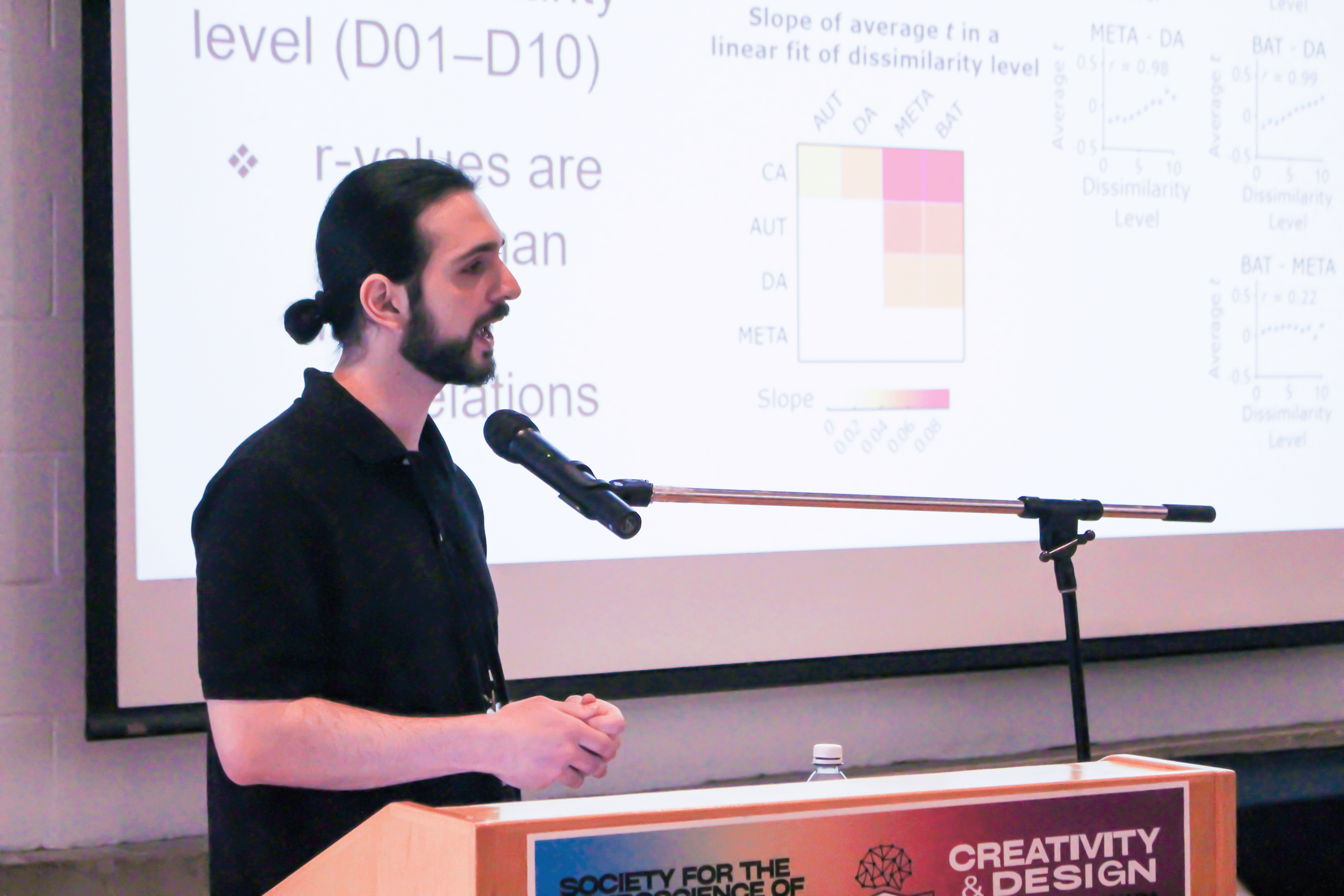
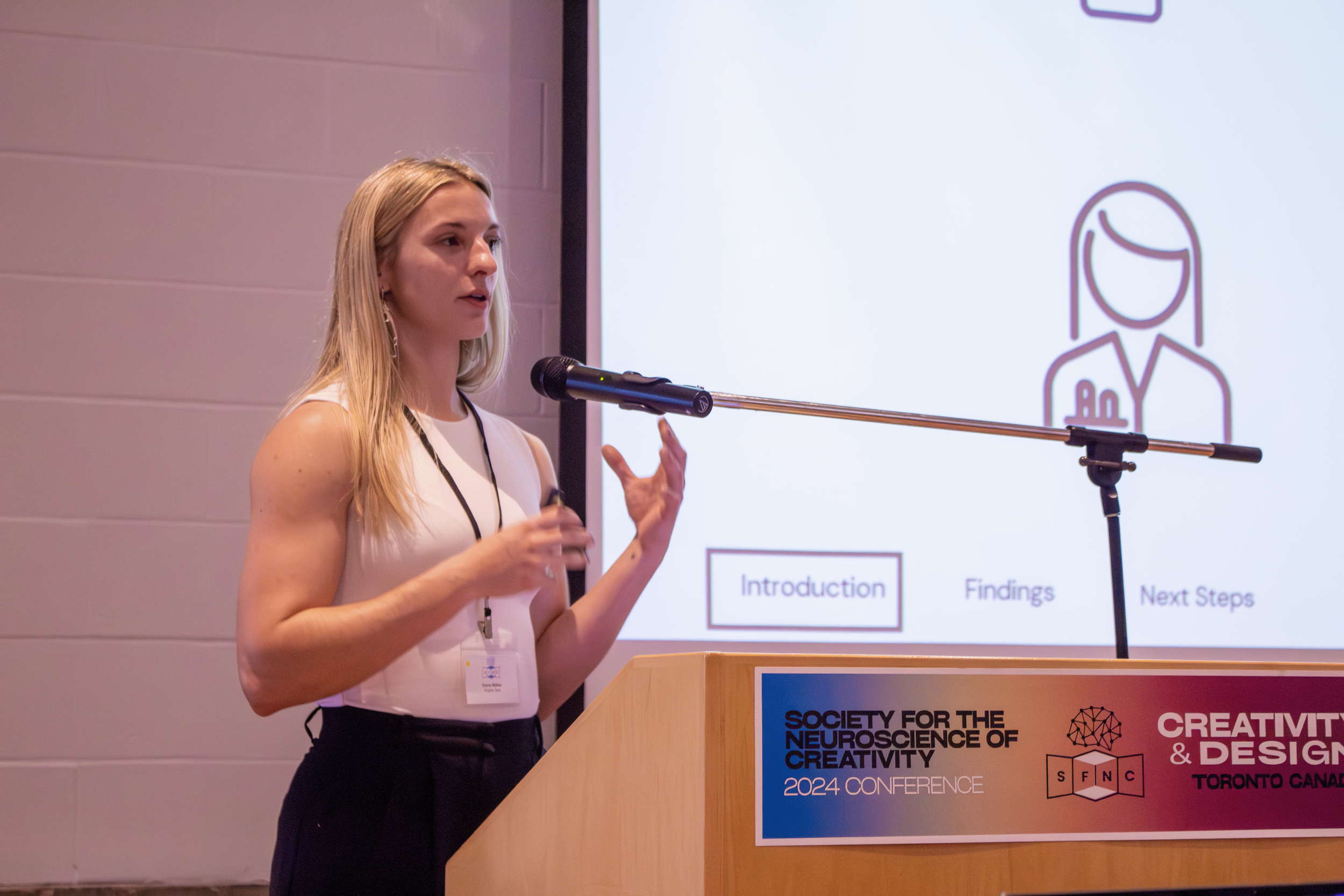
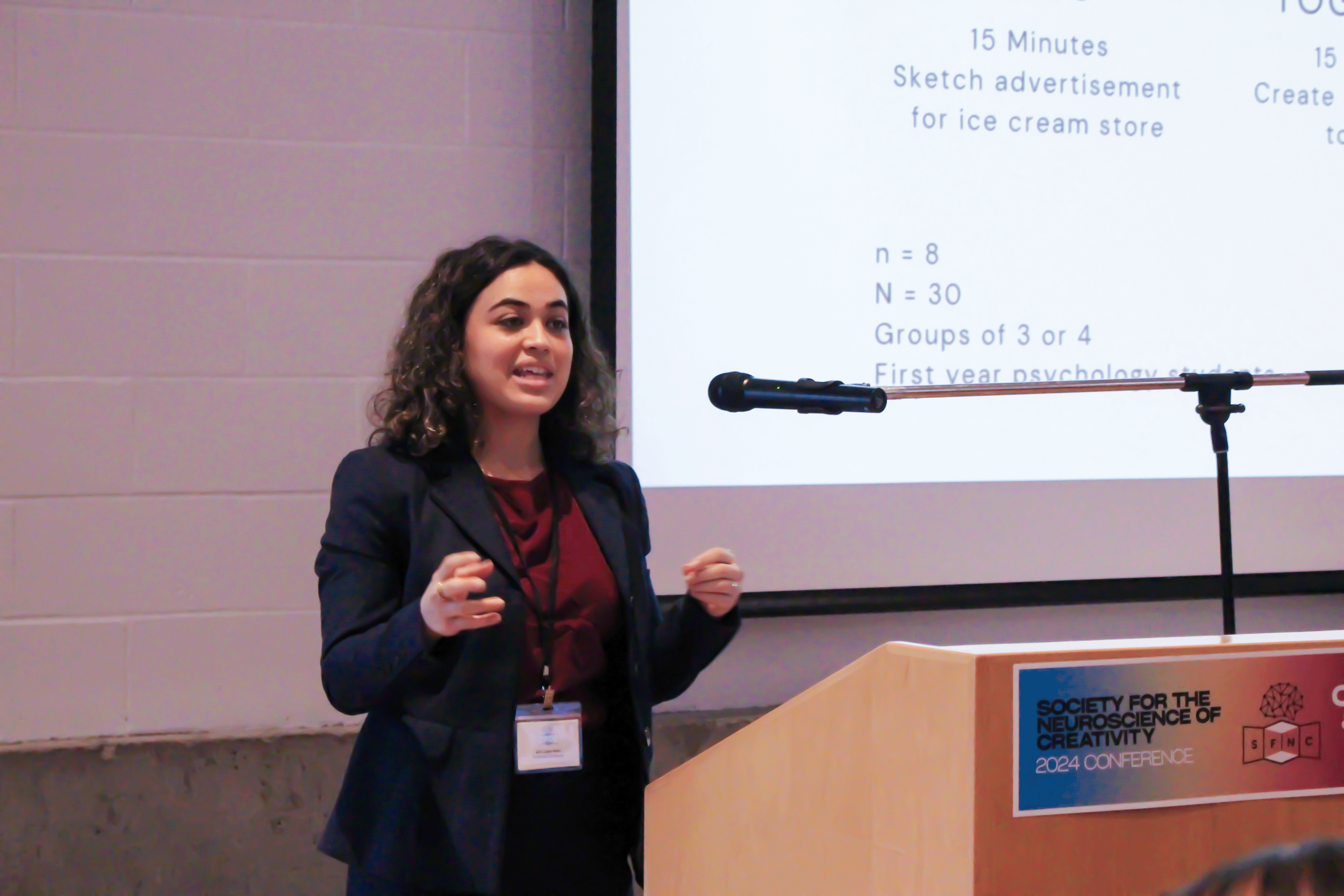
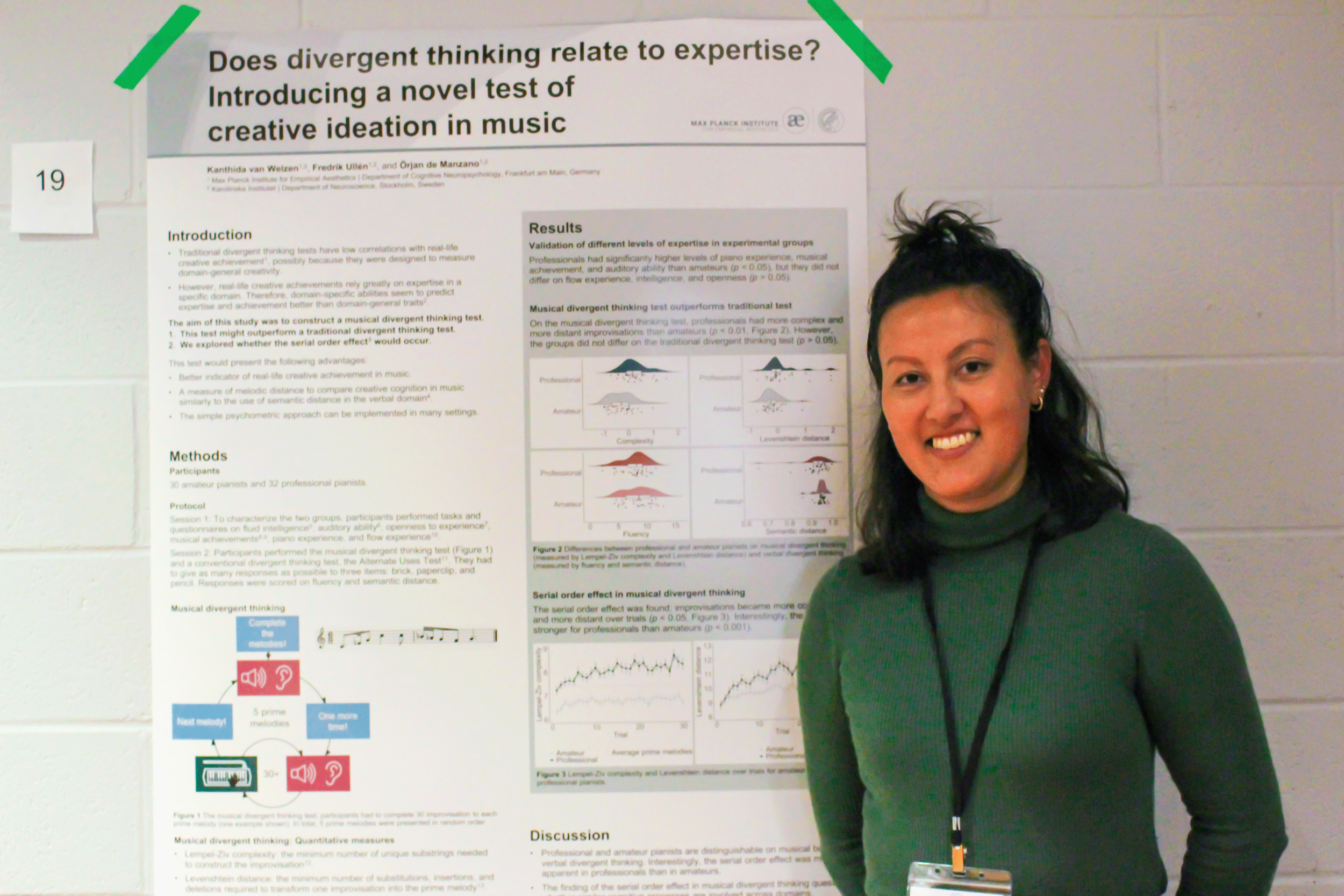
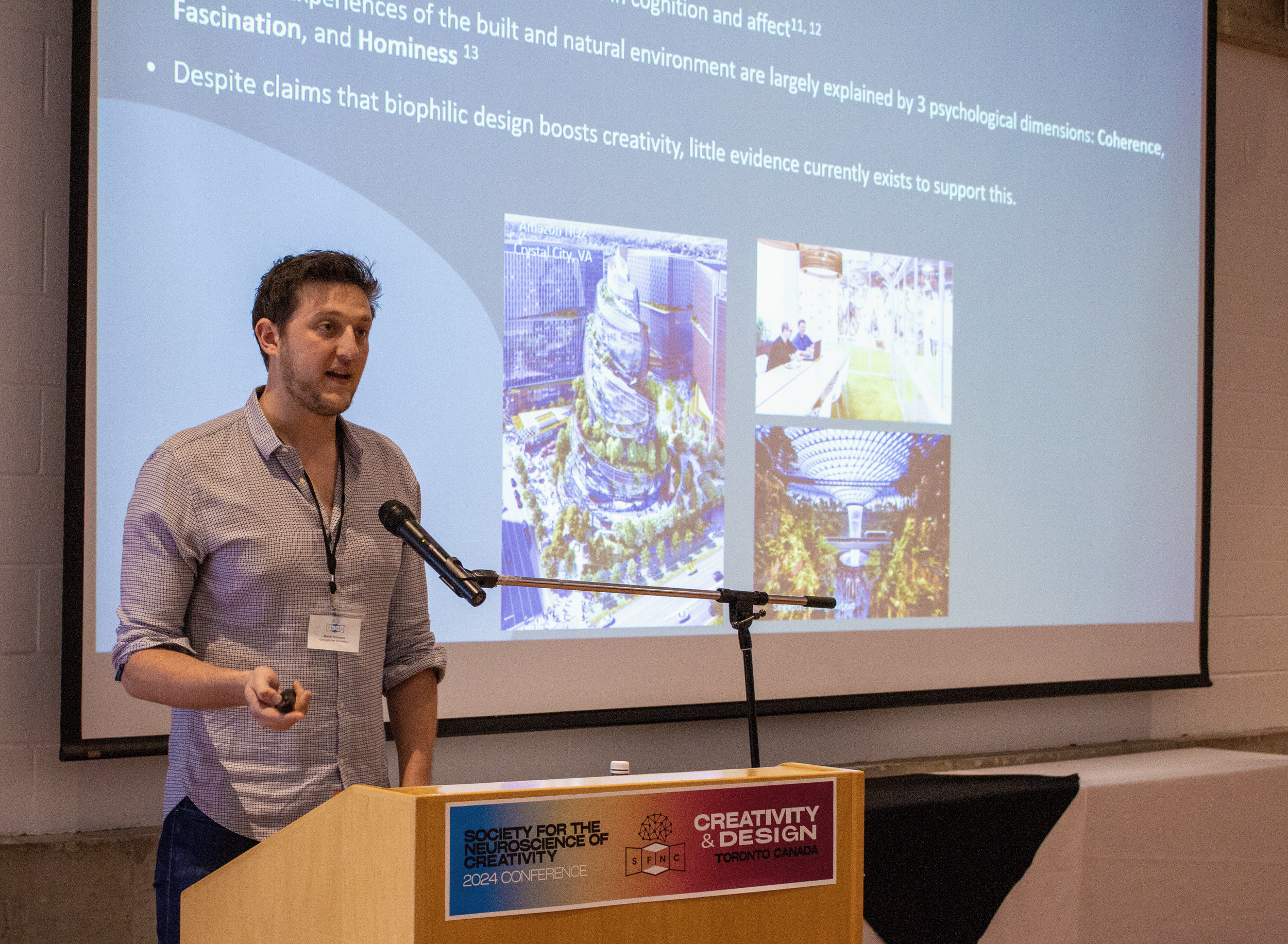
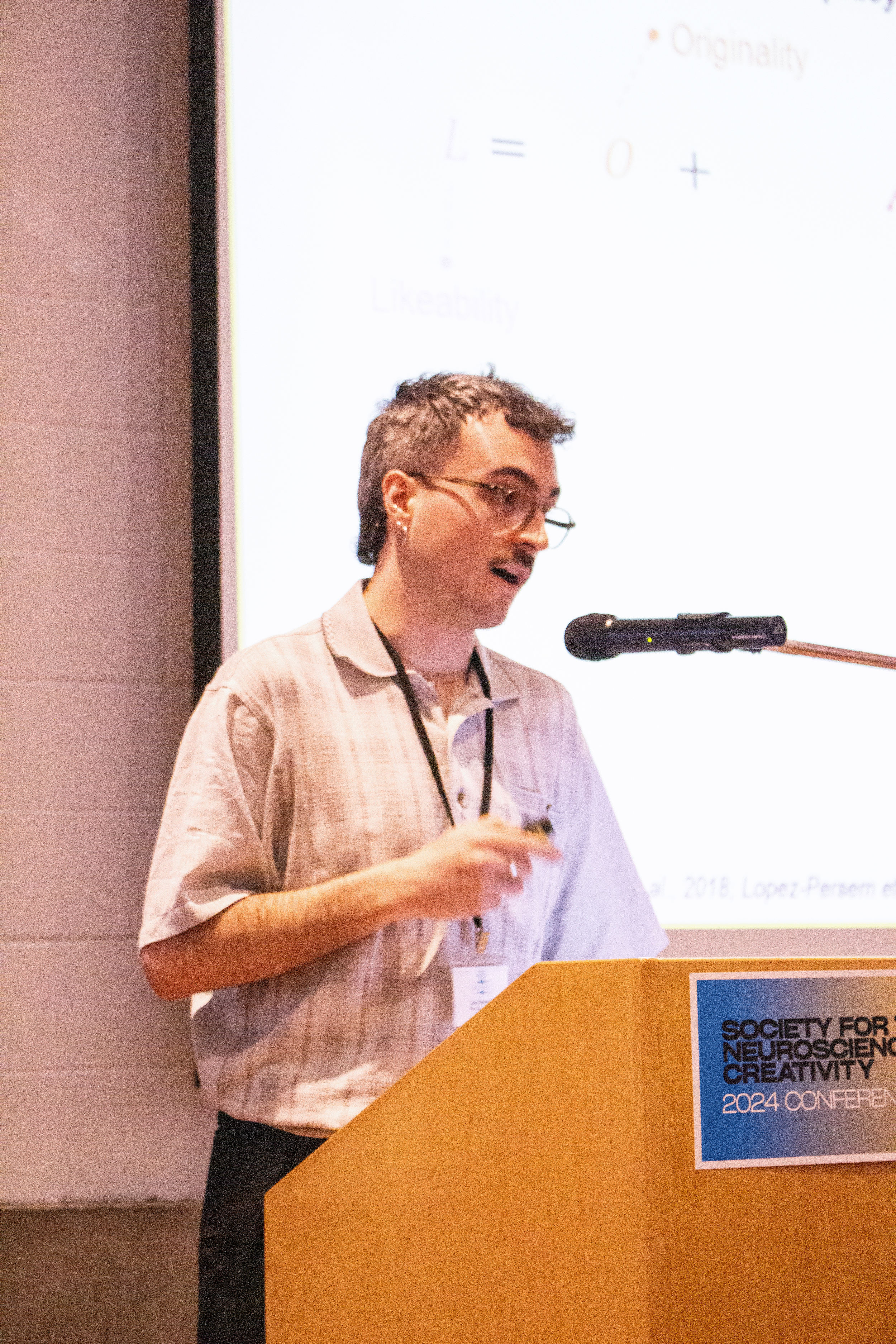
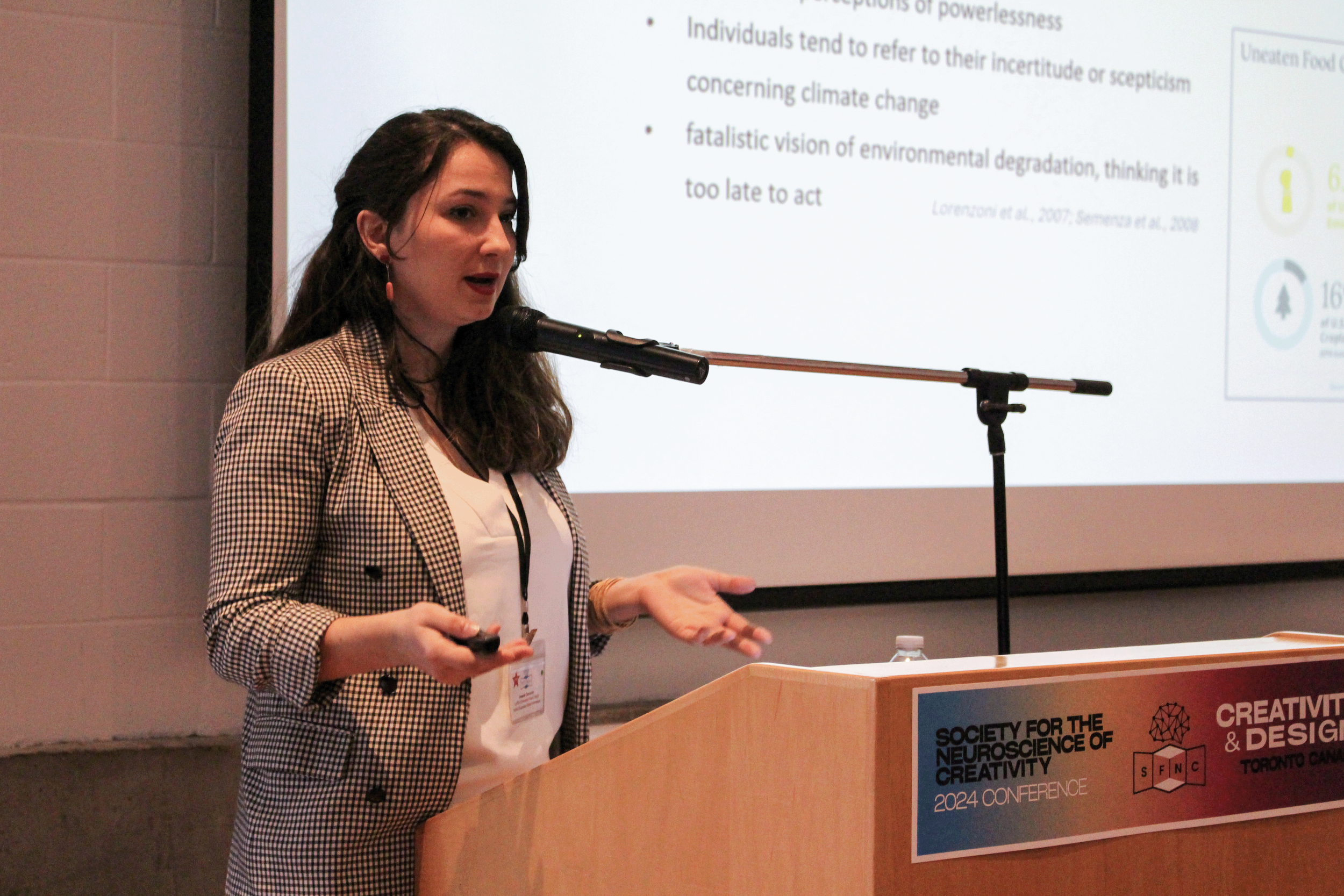
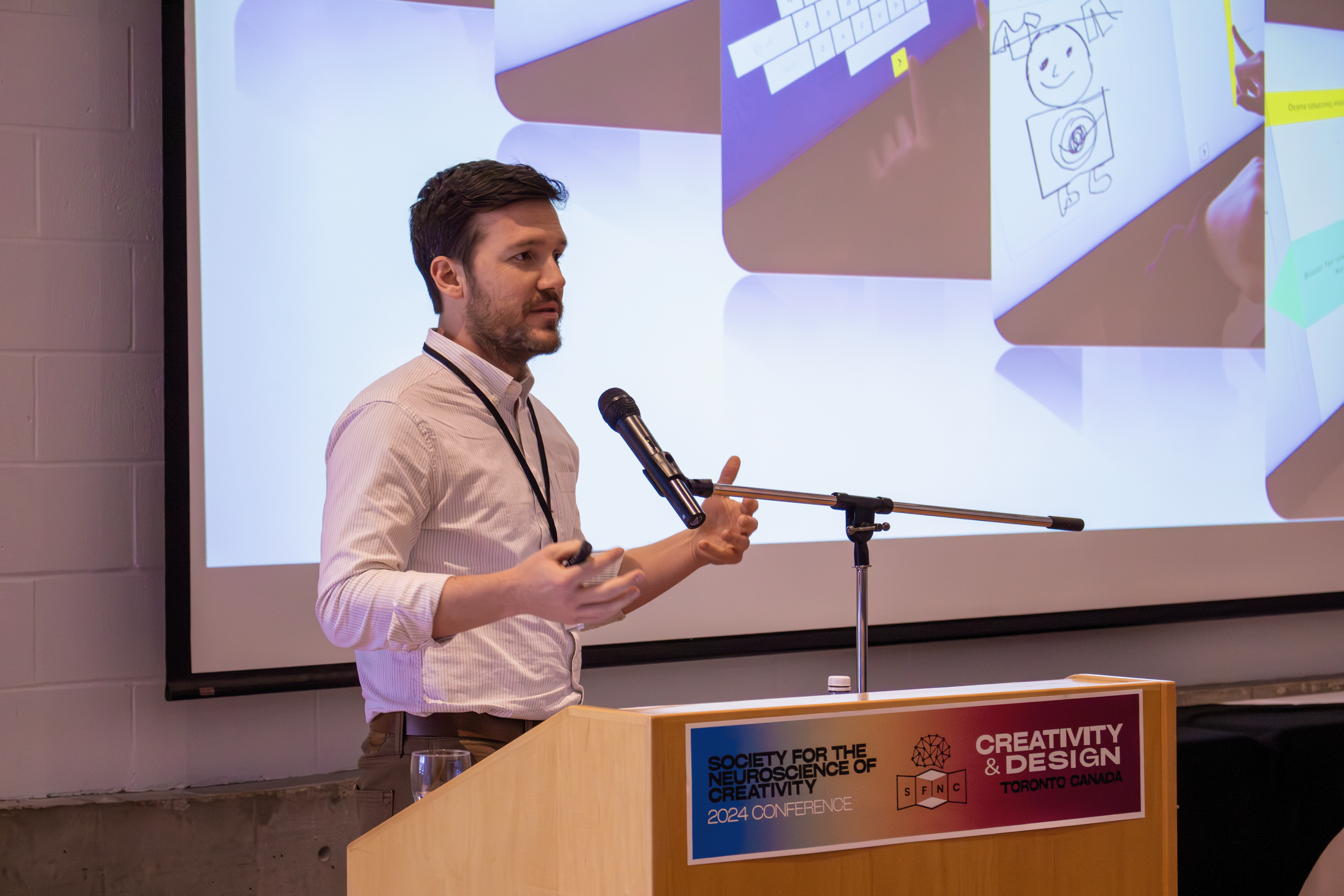

Best Talk and Poster Award Winners
Thank you to our conference sponsors, the Journal of Intelligence and Gorilla Experiment Builder, for their support of the Best Talk and Best Poster Awards!
Clin Lai, winner of Best Poster Award
Gino Battistello standing in for Theophile Bieth, winner of the Best Talk Award
Josie Friedman, winner of the Best Poster Award










